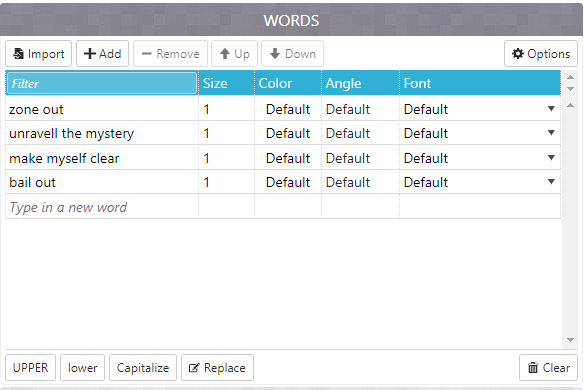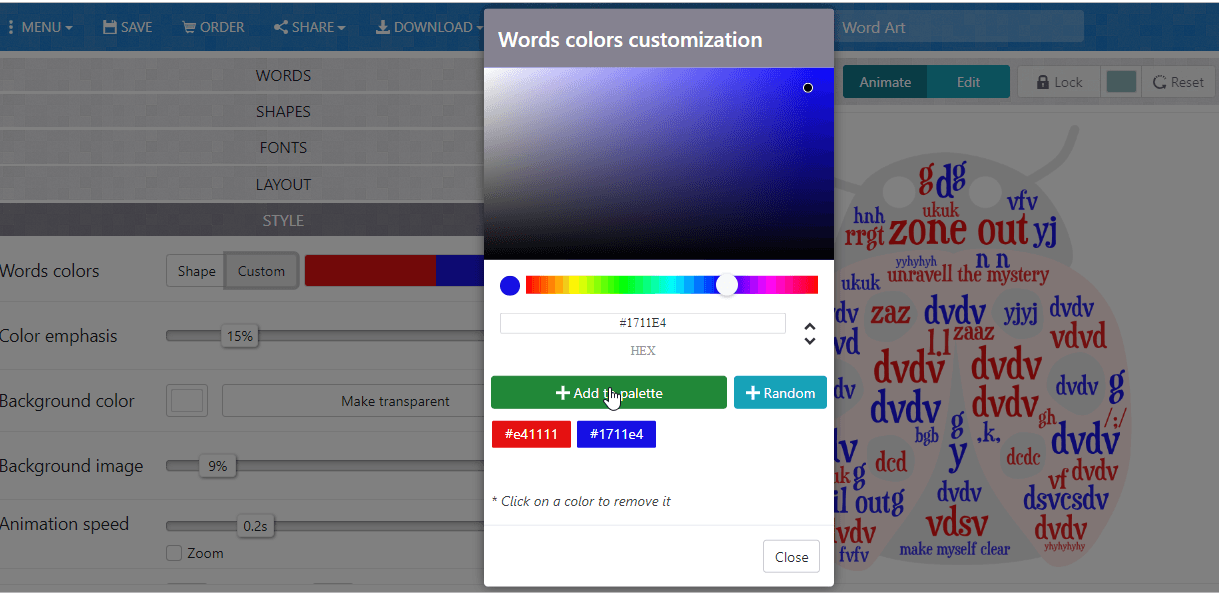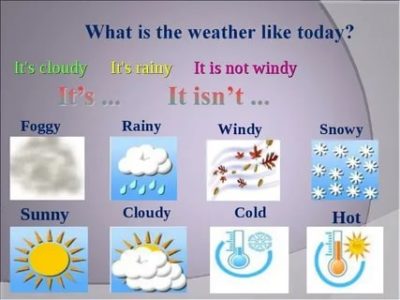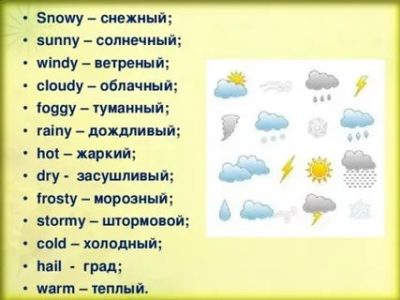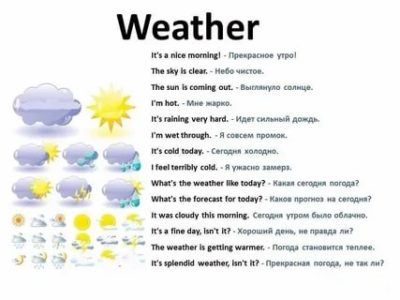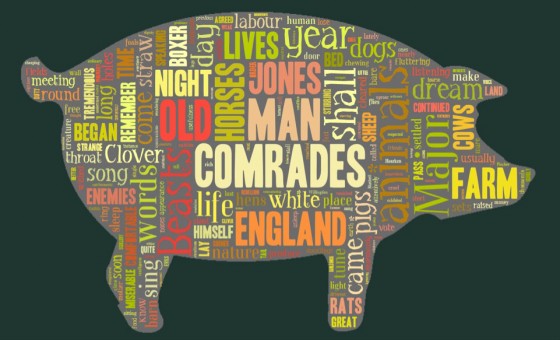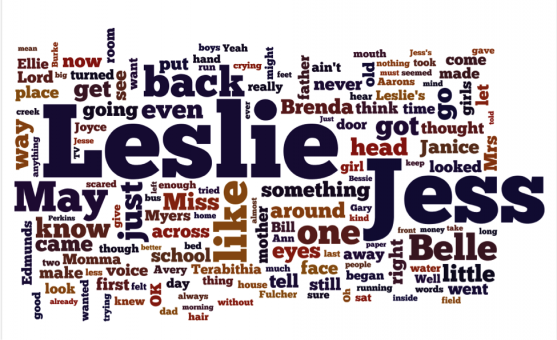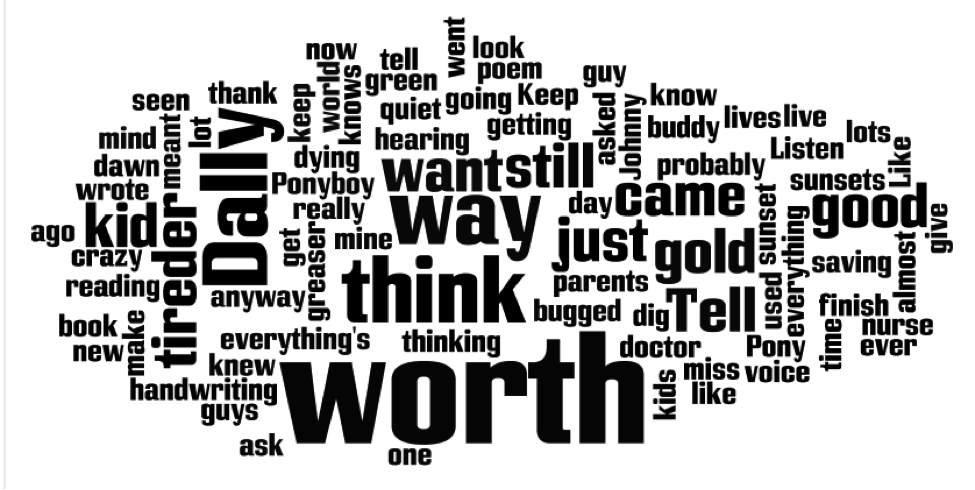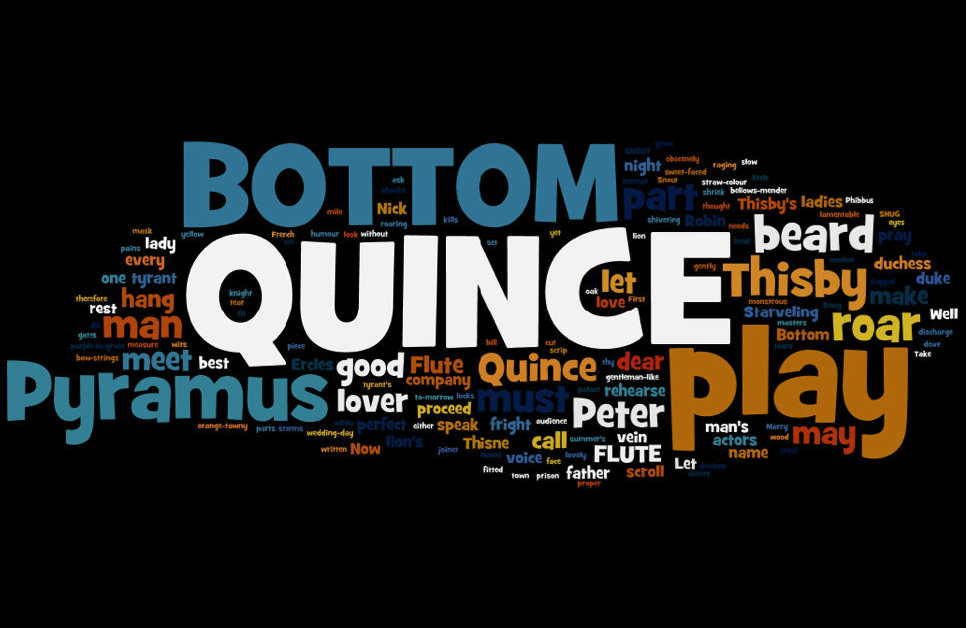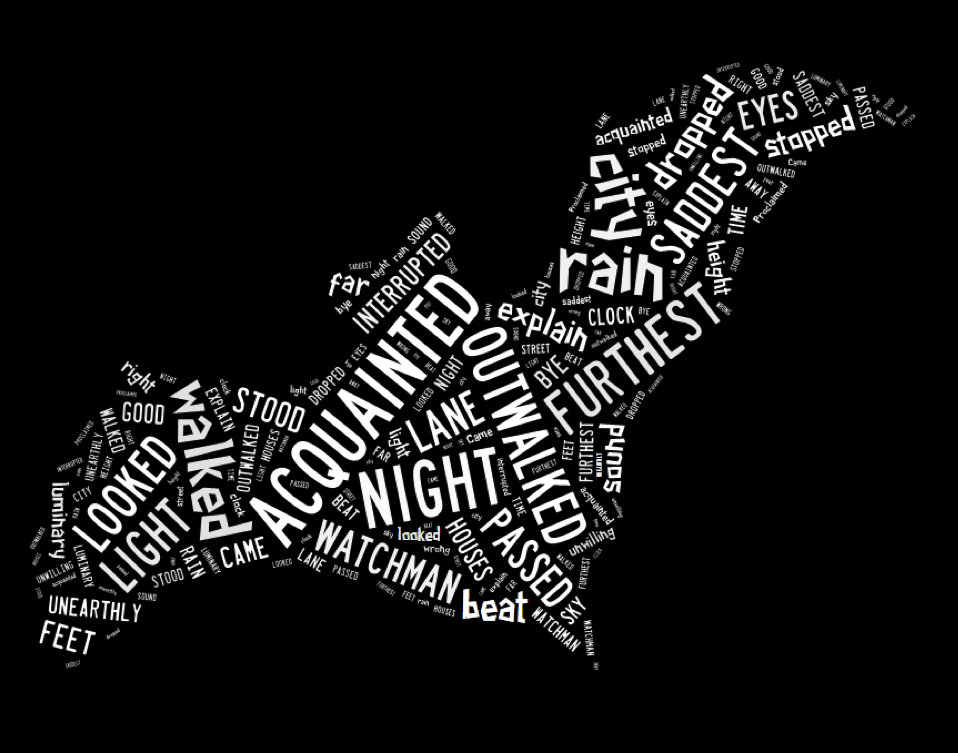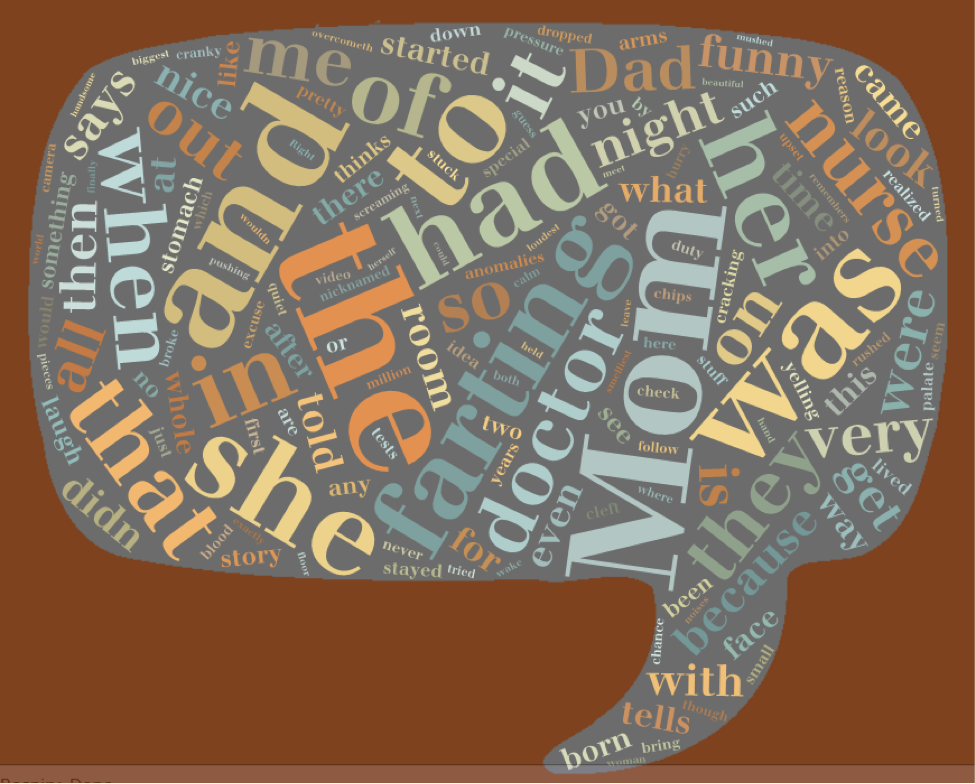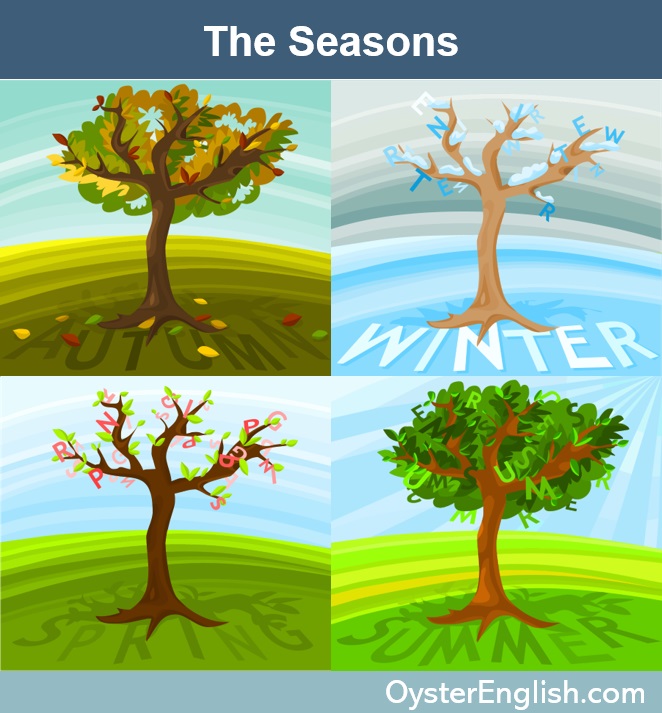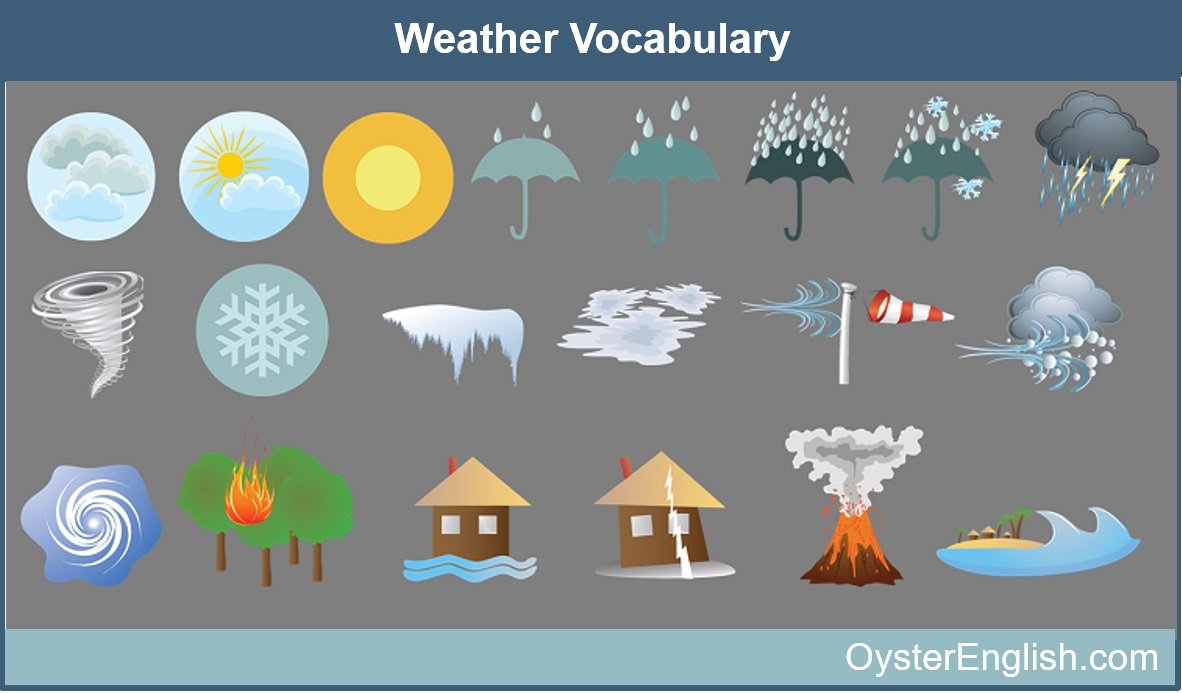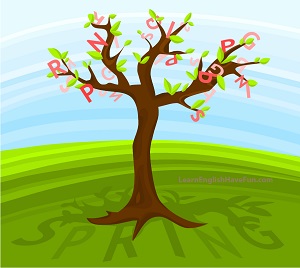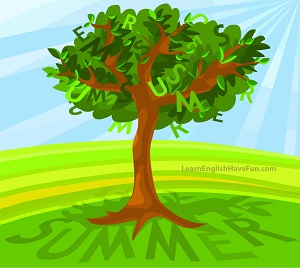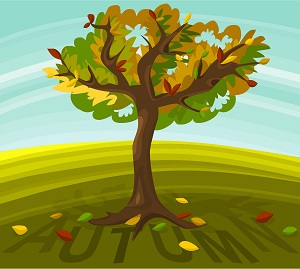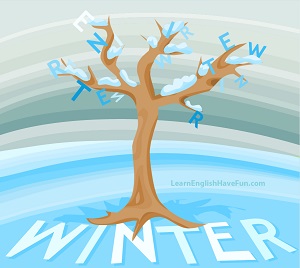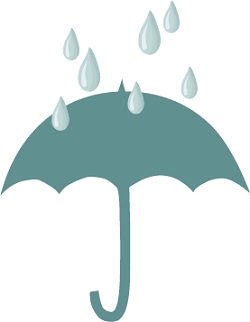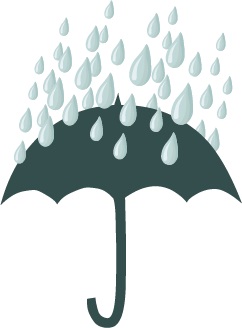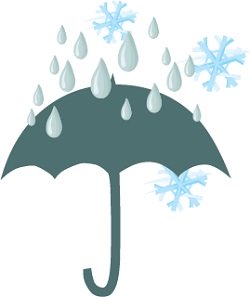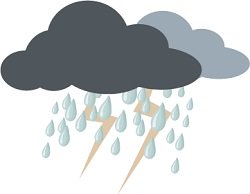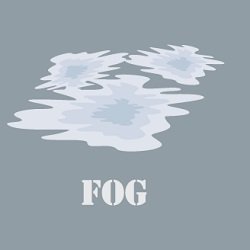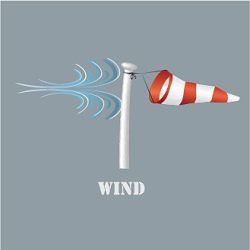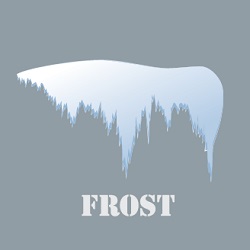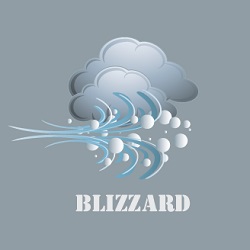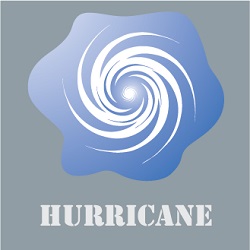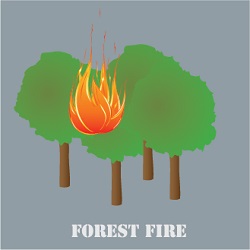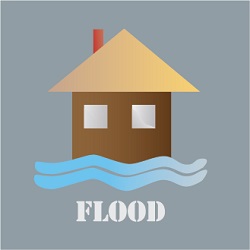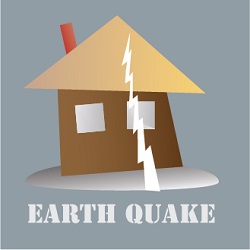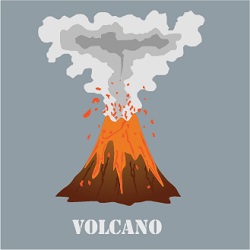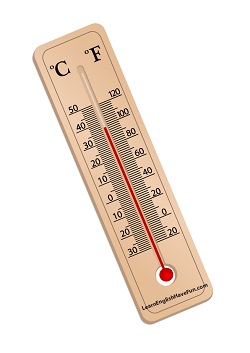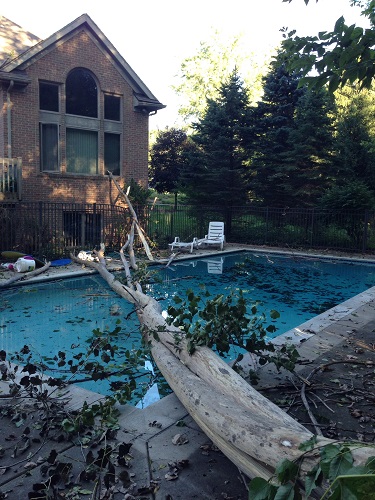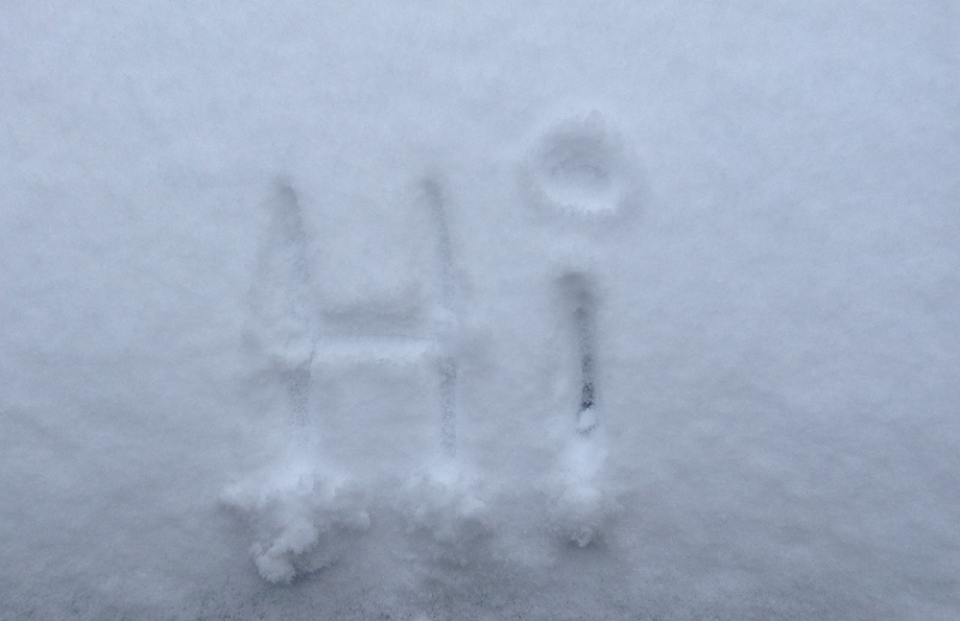Season party
(6-7 класс)
Цели:
1.
Обобщение изученного материала по теме «Whatever the weather».
2.
Закрепление лексических навыков по теме.
3.
Практика в устной речи, аудировании, письме.
Оборудование :жетоны в
виде снежинок, листочков, грибочков и цветочков; карточки со знаками (+ и
—): карточки со знаками «0», «1», «2», «3», распечатки заданий I, III,IV,V для 4
команд, презентация, песочные часы.
Сценарий
мероприятия
I.
Вступительное слово учителя(ведущего).
Teacher.
Good afternoon, dear friends! Today we are going to speak about the seasons of
the year. There are four seasons in a year: spring, summer, autumn and winter.
What are your favourite seasons?
II. Cообщения
учащихся.
The 1st pupil.
My favourite season is autumn. It’s a beautiful season. The leaves are red,
yellow and green. It is warm in September. I can go for a walk. On the 1st
of September I am glad to see my friends at school after summer holidays. In
autumn there are a lot of vegetables and fruit. I like pears, grapes and
watermelons. They are tasty.
The 2nd pupil.
I don’t like autumn. It’s dull. I don’t like when it rains. I like summer.
Summer is a bright season. The trees are green. It’s hot and I can swim, go
sunbathing and play outdoors all day long. I don’t go to school, we have the
longest holidays in summer.
The 3rd pupil.
And my favourite season is winter. Winter is beautiful. The trees are white
with snow. There is a lot of snow in the streets and in the parks. My friends
and I can play snowballs, we can make a snowman, go skating and skiing. I have
a good time in winter.
The 4th pupil.
I
don’t like winter. It’s so cold, the sky is grey and it often snows. The days
are short and the nights are long. I like spring. It’s a beautiful season. The
sun shines brightly, the sky is blue, birds sing songs. In May the trees and
grass are green, there are many beautiful flowers in spring.
Teacher. Well,
children, I think all seasons are good and beautiful. Everything is good in
it’s season. Today we are having a very funny competition. Four teams are
taking part in it. They represent different seasons.
Seasons, you are welcome!
The
1st team is « Winter »
December. Chill December brings the sleet,
Blazing fire and Christmas treat.
January.
January brings the snow
Make our feet and fingers glow.
February.
February brings the rain,
Thaws the frozen lake again.
The
2nd team is « Spring »
March.
March brings breezes loud and shrill,
Stirs the dancing daffodil.
April.
April brings the primrose sweet.
Scatters daisies at our feet.
May.
May brings flocks of pretty lambs,
Skipping
by their
fleecy dams.
The
3rd team is «Summer»
June.
June brings tulips, lilies, roses,
Full the children’s hand with posies.
July.
Hot July brings cooling showers,
Apricots and pretty flowers.
August.
August brings the sheaves of corn,
Then the harvest home is borne.
The
4th team is « Autumn »
September.
Warm September brings the fruit,
Sportsmen then begin to shoot.
October.
October brings the pheasant,
Then to gather nuts is pleasant.
November.
Dull November brings the blast,
Then the leaves are whirling fast.
Teacher. Now I see that
you know all the seasons of the year. And now let’s compete.
Task
I. Sign the picture.
Teacher.
When we speak about seasons we always speak about weather. You can see
different symbols of different kinds of weather. You have to write the correct
word under each symbol. Each team gets one point for every correct answer.
(Sunny,
raining, thunder, cloudy, snowy)
Task
II. Agree or disagree.
Teacher. You have got 2 cards (+ and -). Now listen to the
sentences and raise one of the cards. If you agree with the sentence, raise (+),
if you disagree, raise (-).
1
.There are ten months in a year. (-)
2.
There are thirty days in February. (-)
3.
The winter months are December, January and February. (+)
4.
The spring months are June, July and August. (-)
5.
The summer months are June, July and August. (+)
6.
The autumn months are September, October and November. (+)
7.
We go to school in September. (+)
8.
School begins on the first of September, school is over in May. (+)
Task
III. Word square.
Teacher.
I see that you know a lot about seasons. Now I’d like to see how you know
the spelling of the months.
Your task is to find the twelve months of the year in
this word square.
Игра со зрителями.
Teacher. While our teams
are working let’s play with you, my dear friends. I have some riddles for you.
1. We are very large though we seem
small,
We float on high and never fall,
We shine like jewels in the night,
But in the day are hid from sight.
What are we? (The stars)
2. What fall, but never rises?
(Rain)
3. Two bright sisters are always
running and never meet. (The sun and the moon)
4. I’m born green, and die yellow in
large and small gardens. (Grass)
5. A little old woman with twelve
children, some short, some long, some cold, some hot. What is she? (A
year)
6. A blue sheet which covers the
whole world. What is it? (The sky)
7. What is without hands and
without feet, without a head or a body, but can open a door? (Wind)
8
.It
is white, it is cold. We can skate on it. What is it? (Ice)
9. In what month do children laugh
less? (In February)
Task
IV. Put the letters in the correct order.
Teacher.
Clouds
sometimes bring bad weather. Unscramble the words to find out what kind of
weather each cloud is bringing.
1.
A I N R ( rain)
2.
W O N S (snow)
3.
RMWA (warm)
4.
OLDC (cold)
5.
PINGRS (spring)
6.
ERWTNI (winter)
7
.MEMRUS (summer)
8.
DIWN (wind)
Task
V. Rhymes.
Teacher. The wind is
blowing. The wind brings us new weather and helps plants and trees scatter
seeds. The leaves below have scattered by the wind, too. To find out which leaf
belongs to which tree, find the words that rhyme and draw a line to connect
them.
1.
rain –
2.
cloud –
3.
sun –
4.
fog –
5.
snow –
(grow, hog, fun, proud, train)
Teacher. While our teams
are doing the task, answer my questions, my dear friends.(игра со зрителями)
1.
Which month has only 3 letters? (May)
2.
Which four month end in the letters – ber? (September, October, November,
December)
3.
Which month comes after July? (August)
4
.If the last month of winter is February, which is the first month of spring?
(March)
5.
Which season is it now? ( ….)
Task
VI.
Teacher. Now, my dear
friends, is the last task of our competition. You can see different groups of
words. Listen to my statements very attentively and if you agree – raise the
card «0», if you disagree with me in the second word – raise the card «1», in
the second word – the card «2», in the third word – the card «3».
1. Autumn, September,
November
I
think that all these words mean months. («1»)
2.
Winter,
Spring, April
I
think that all these words mean seasons. («3»)
3.
Cold,
Hot, Warm
I
think that all these words describe weather. («0»)
4.
Yellow,
White, Green
I think that leaves can have these colours in autumn. («2»)
5.
Ski,
Skate, Swim
I think we can do it in winter. («3»)
Teacher. We ‘ve spoken a
lot about different seasons of a year. I’m sure that you like fairy-tales very
much. Do you?
In what fairy-tale can we meet all the month?
Yes, you are right. This fairy-tale is called «Twelve months». Our participants
have prepared one scene from this fairy-tale. And the members of our jury will
choose the best team.
SCENE FROM THE
FAIRY-TALE «TWELVE MONTH»
Заснеженный лес. В глубине сцены – поляна; на поляне
горит костёр. Падчерица подходит к лесу, кутаясь в рваный платок.
Stepdaughter. Well, it’s the
edge of the forest. It’s so dark here. I can’t see my hands before my face.(Оглядывается.) Oh! I see a
light flickering some way off amid the trees.
Падчерица выбегает на поляну.
Около костра стоят 12 месяцев.
December. Who are you? What
brought you here?
Stepdaughter. I have to pick a
full basket of snowdrops.
Все оглядываются и смеются.
January. Snowdrops in
January? Is it a joke, girl?
Stepdaughter. My stepmother
sent me here for snowdrops and forbade me to return without them.
February. What are you
going to do?
Stepdaughter. I will stay in
the forest and wait till the month of April comes. I would rather freeze here
then return without them.(Садиться и плачет)
Месяцы шепчутся.
January. Gladly would I
grant you an hour, brother, but April can’t come before February and March.
February. Let him take my
place, I don’t mind. We all know the girl. We meet her at the ice-hole with her
pails or in the forest with her bundle of firewood.
July. And we, summer
months, know her, too. She is a good girl.
September. Autumn months
like her for her kind heart.
March. We must help
her.
January. So be it! (Стучит 3 раза посохом)
Frost,
O Frost, cold master of the ice,
Pray
melt the frozen heart;
Untie
the stiff bonds in a trice
And
let the snowdrifts part.
Sturdy
fir and lofty pine,
Shake
free your crystal lace;
Frozen
snows, at once recline,
January
yields his place.
Now, it’s your turn, brother February. (Январь передаёт посох Февралю)
February. Wind, tempest,
storm and gale,
Blow
with all your might.
Blizzard,
furies, sleet and hail,
Rage
into the night.
Plough
your furrows through the snow,
Sweep
across the lake.
Drive
the ground wind high and low,
Twisting
like a snake.
Now
it is up to you brother March. (Передаёт посох)
March.
Babble
gaily, melting brook,
Ripple,
glistening pool;
Ants
awake and leave your nook,
Goner’s
the winter cruel.
Now
it is up to you, brother April. (передаёт посох)
April. Birds, return
and sing your song,
Disperse
the forest gloom.
Bears
and squirrels, come along,
Tender
snowdrops, bloom.
Girl,
you have only one hour. Take your basket and pick snowdrops.
Набрав подснежников, падчерица подходит к месяцам.
Stepdaughter. Thank you very
much!
April. We’ve decided to
give you our ring. If you want to see us, you’ll have to throw our ring and say:
Roll, roll the ring
To the steps of spring,
To the summer porch,
To the autumn cottage,
With winter shine
To the New Year’s fire!
Stepdaughter. Thank you! Good-bye!
All
month.
Good-bye, girl!(Девочка уходит)
Подведение
итогов соревнований.
Our
competent jury has counted the points. The most points has…. The team … is the
winner!
Награждение
(призы, отметки в журнал)
Variety and novelty in English lessons encourage learners to be more engaged. On the contrary, monotonous tasks, no matter how useful they are, cause boredom. How to bring variety without too many changes in the process of learning vocabulary? Use word clouds.
Word clouds are a graphical representation of words and words combinations. They can be used for:
- vocabulary revision
- presenting lexis
- practicing new words
- student’s projects.
It is just a more visually appealing way to teach vocabulary. Instead of using lists, which students are probably fed up with, make clouds. You can utilize them for word searches, making monologues and dialogues, word games, writing tasks, etc.
Here are some examples of the tasks.
Task 1
Make a story about a detective investigating a case using all the words and tell your partner (the teacher).
Task 2
Work in pairs. Ask and answer five questions using the words.
Task 3
Give a definition of one of the words. Can your partner guess the word? Swap roles.
There are some services for creating word clouds:
Word Art
Wordle
Word clouds
I personally prefer to use Word art because it’s possible to create clouds containing collocations. As we know teaching collocations is more effective for learners. Other services just break the word pairs into single words.
Let’s see how to create word clouds using Word art. It’s quick and easy, no registration is required. So click ‘Create’ and make your cloud.
Step 1
Fill in the words or word combinations. You can type as many words as you need, even 30 or even 50. It’s possible to Capitalize letters, use the UPPER or lower case. Click ‘Options’ and opt for repetition of the words as you see in one of the pictures above or choose no repetition.
Step 2
Choose the shape of your cloud: animals, nature, people or some holidays themes. If you want to see the changes, click the red button ‘Visualize’.
For example, this charming ladybird will definitely catch kids’ interest.
 Step 3
Step 3
Choose a font which you like. There are more than 50 fonts to select.
Step 4
Pick out a layout: horizontal, vertical, crossing words, dancing words, slopes and random. The layout will depend on the task and the learners. Teens prefer something less ordinal and more creative. For adults, I usually make more conservative things like a horizontal layout.
Step 5
Choose a style: colours of the words and the background. If you want to change a colour of the words, click ‘Words colours’ and ‘Custom’ and add more colours to the pallette.
Step 6
To apply all the changes, press ‘Print’ or ‘Download’ your cloud and enjoy it in your lessons.
Weather description in English — the most important words and phrases
One of the most common topics of conversation in our daily life is the weather. You can talk about it always and with anyone. The weather can be good, great, awful, unusual, etc. In this article, we will look at a detailed description of the weather in English.
Basic Weather Vocabulary
The word «weather» in English translates as «The weather».
From what the forecaster says (weather chart maker) the morning choice of clothes depends. We decide whether to take an umbrella with us and make plans for the weekend: spend sunny days somewhere in nature or bask under the covers, admiring the snow from the window.
Let’s take a look at the most common words and phrases related to weather and its description.
During a conversation, you can ask:
- What is the weather in your country / city? — What is the weather in your country / city?
- How is the weather today? -How is the weather today?
First of all, let’s learn words that are directly related to today’s topic.
Adjectives
- Excellent — excellent.
- Glorious — delightful, glorious.
- Superb — wonderful.
- adverse — unfavorable.
- Sweltering — sultry.
- Boiling — very hot.
- Scorching — scorching, sultry.
- Atrocious / vile — disgusting.
- Inclement — severe.
- Nasty — rainy.
- freezing — very cold, chilling.
- foul — disgusting, disgusting.
- Raw — dank.
- Humid — wet.
- muggy — warm and humid, suffocating.
- Sultry — sultry, stuffy.
- Mild — moderate.
- Settled — constant.
- unpredictable — unpredictable.
- changeable — changeable.
- Fierce — frantic.
- Frosty — frosty.
- Stormy — thunderous, stormy.
- unseasonable — out of season.
- A spell of weather — the period of such and such weather.
Nouns
- sun — Sun
- sky — sky
- cloud — cloud, cloud
- rain — rain
- snow — snow
- fog — fog
- fog — light fog, haze
- haze — haze (usually caused by heat)
- hail — hail; go (about hail)
- hailstones — hail
- snowflake — Snowflake
- blizzard — snow storm, blizzard
- sleet — freezing rain, rain and snow
Temperature
- hot — hot (hot)
- cool — cool (cool)
- chilly — cold, cool
- cold — cold
- freezing — icy
Tell specifically about the air temperature (air temperature) you can use the phrases
- below zero — below zero,
- above zero — above zero.
- or simply minus — plus.
Just remember that in English-speaking countries there are two scales for measuring temperature — Fahrenheit и Celsius… Interestingly, 32 degrees Fahrenheit is 0 degrees Celsius.
- It’s 32 degrees Fahrenheit (° F) outside. — Outside 0 degrees Celsius.
- It’s minus 7 degrees Celsius (° C)… — It’s 7 degrees Celsius now.
In the weather forecast, the presenters also use additional words to describe upcoming events, for example, strong winds (strong wind) or even a stormy wind (gale force wind), or maybe a small one (slight) or, conversely, impetuous (gusty).
Words and phrases to describe rain
- rain — rain
- damp — wet, damp (after rain)
- drizzle — drizzle; light rain
- shower — shower (short)
- downpour — downpour
- for
— pouring (about heavy rain) - It’s raining cats and dogs. — It rains like a bucket (idiom).
- torrential rain — very heavy rain
- flood — flood
Phrases about rain contain additional vocabulary for us: light rain (gentle rain), continuous (persistent), lingering (steady). About the fog, we can say that it is thick (dense) or dense (thick), strong or dark (dark). Or maybe just weak (slight).
Please note that heavy rain translates as heavy rain, i.e. literally «heavy», not powerful or strong as you might think.
Natural disasters
- thunder storm — storm
- snowstorm — blizzard, blizzard, blizzard
- tornado — tornado, tornado, squall
- hurricane / typhoon — Hurricane; tropical cyclone
- earthquake — earthquake
- tidal wave — tidal wave
- volcanic eruption — eruption
- drug — drought
Basis of the sentence in English about the weather
Any grammatically correct statement (sentences in English about the weather are no exception) must have a subject and an action. This is not necessary in native Russian and this is why confusion can occur. For example, the Russian short sentence “It’s cold outside” will look completely different in English — “It is cold in the street”.
In this case, it plays the role of a subject, is — actions, and then everything that we wanted to say about the weather is already attached. The literal translation of this sentence into English will look like this: «It’s cold outside.»
You need to get used to this, since otherwise it will be difficult to grammatically correctly express your thought about natural phenomena in English.
Remember one thing: most weather sentences begin with it, followed by the verb to be at the appropriate tense.
Phrases and expressions to describe the weather
Talking about warm weather
- There are different ways to say about good weather outside, for example:
- It’s warm today. — Today it’s warm.
- It’s warm out today. — Normal (The phrase «warm out» means that the weather is good, moderate. And not hot and not cold, as they say.)
- The weather is good. — The weather is good
- The weather is gorgeous today! — The weather is fine today!
- It’s a sunshine day! Today is a sunny day!
- It’s hot outside! — It’s hot outside!
Talking about cold rainy weather
- It’s cold today! — It is cold today!
- It’s raining. — It’s raining.
- It’s snowing. — Snowing.
- It’s slushing outside! — There’s slush on the street!
- The weather is nasty today! The weather today is nasty / disgusting / disgusting!
- It often snows in winter. — It’s snowing frequently in the winter.
- The temperature is 2 degrees below zero. — Temperature 2 degrees below zero.
Description of the weather in English with translation
The weather descrиption
Source: https://englandlearn.com/words/opisanie-pogody
Weather in English with examples and dialogues
›Learning a language› Vocabulary ›Weather in English: words and phrases, grammatical laws, examples of dialogues
The climatic conditions that the inhabitants of Foggy Albion face on a daily basis have led to the fact that the conversation about the weather is an almost eternal topic in the lips of the British.
Therefore, if you want to speak English fluently and at ease, like a born British, then you simply have to be able to keep up a conversation about capriciously changeable or, on the contrary, stubbornly stable weather outside the window. Communication on this topic and we will learn in today’s lesson.
We will find out what words describe the weather in English, learn popular phrases and analyze the principle of their construction, and also work through the studied information in the form of a dialogue.
Description of the weather in English (grammar)
For the first time we come across a description of the weather in English in elementary school. Often in the classroom, the teacher builds small dialogues with the children about what the weather is like today and how the children relate to it. Thus, students repeat the learned vocabulary, and also gradually get used to feel confident in a conversation in a foreign language.
When studying today’s material, we will try to adhere to a similar tactic: first, we will study the grammatical and lexical basis, and then we will practice in «live» speech, ie. we will strive to build our own dialogue about any weather in English. So, let’s take a look at a few small rules.
Important grammatical points
- In order to compose a simple expression about the weather in English, you must use the grammatical construction it is… When translated into Russian, such phrases are translated as short, impersonal sentences. It is windy — Windy. It is sunny — Sunny. It is cold — Cold.
- The pronoun it is also used as a subject when denoting weather phenomena characteristic of a particular season or occurring at a given moment in time. Note the difference in the context of the sentences for the Present Simple and Present Continuous aspects.
- It is snowing outside — It is snowing outside (the weather is today, right now).
- It rains in autumn in Prague — It is rainy in Prague in autumn (seasonal phenomenon).
- The noun weather itself in English is always used with the definite article the. If there is an adjective in front of the noun, the article is not required.
- The weather is getting colder — It is getting colder.
- Does she cold weather? — Does she like cold weather?
- The vocabulary expressing natural phenomena, as a rule, is used without an article. But it should be borne in mind that when designating a location, the English language requires the setting of the definite article the.
- Jack s snow — Jack loves snow.
- My dog s to lie in the sun — My dog loves to lie in the sun.
Knowledge of these norms is necessary for a grammatically correct construction of a weather story in English. Now let’s get acquainted with the lexical part of the material.
Description of the weather in English (vocabulary)
So, the tables below will help us learn words on the topic of weather in English. They are all divided into thematic blocks, which makes it easier and more efficient to assimilate new information. English words and phrases on the topic of weather are given with transcription and translation, which allows you to practice all the necessary skills at once: reading, pronunciation, translation and writing.
Basic expressions
Let’s start with the simplest vocabulary. This section contains basic phrases and words about the weather in English for children, as well as for adults who are just starting their way to mastering the language. Since it is difficult to work with English transcription at a basic level, a column with approximate pronunciation in Russian is shown next to it. In the following sections, only the original transcription is used.
In the first table, consider a list of nouns describing natural phenomena.
| Word | Transcription | Russian pronunciation | Transfer |
| weather | [weðə (r)] | [weather] | weather |
| sun | [sʌn] | [san] | the sun |
| wind | [wɪnd] | [wind] | wind |
| rain | [ren] | [rain] | rain |
| snow | [snəʊ] | [snow] | snow |
| fog | [fɒɡ] | [foog] | fog |
| ice | [aɪs] | [ice] | лед |
| thunder | [θʌn.dər] | [sander] | thunder |
| lighting | [laɪ.tɪŋ] | [lightin] | lightning |
But when talking about nature, a variety of adjectives are often used. Therefore, in the following table, we will get acquainted with the characteristics that indicate the weather in English with Russian translation and pronunciation.
| sunny | [sʌn.i] | [sled] | solar |
| windy | [wɪn.di] | [windy] | windy |
| rainy | [reɪ.ni] | [rainey] | rainy |
| snowy | [snəʊ.i] | [snowy] | snow |
| foggy | [fɒɡ.i] | [fogi] | fog |
| warm | [wɔːm] | [wow] | warm |
| hot | [scissing] | [hot] | hot |
| cold | [kəʊld] | [cold] | cold |
| frosty | [frɒs.ti] | [frosty] | frosty |
| cloudy | [kla.di] | [cloudy] | cloudy |
This short list will allow kids and newbies to come up with a couple of weather suggestions.
We also suggest that you learn a cheat sheet, which contains English questions about the weather, and several options for answering them.
| Expression | Transcription | Russian pronunciation | Transfer |
| What weather do you? | [wɒt weðə (r) du ju laɪk] | [Wat uezer doo yu like] | what kind of weather do you like? |
| I (cold / hot / snowy) weather. | [aɪ laɪk (kəʊld / hɒt /snəʊ.i) weðə (r)] | [I like cold / hot / snowy weather] | I like the (cold / hot / snowy) weather. |
| What is the weather today? | [wɒt ɪz ðə weðə (r) laɪk təˈdeɪ] | [Wat iz ze uezer like today?] | What is the weather today? |
| The weather is fine. | [ðə weðə (r) ɪz faɪn] | [The Uezer of Fine] | Good weather. |
| The weather is bad. | [ðə weðə (r) ɪz bæd] | [The uezer from bad] | The weather is bad. |
| It is (sunny / warm / windy) today. | [ɪt ɪz (sʌn.i / wɔːm / wɪn.di /) təˈdeɪ] | [it from (sleigh / woom / windy) today] | Today (sunny / warm / windy). |
| It is raining. | [ɪtɪz reɪnɪŋ] | [It from Raining] | It’s raining. |
| It is snowing. | [ɪtɪz snəʊɪŋ] | [It from snowing] | Snowing. |
| What is the weather in (summer / spring / autumn / winter)? | [wɒt ɪz ðə weðə (r) laɪk ɪn (sʌmə (r) / sprɪŋ / ˈɔːtəm / wɪntə (r)] | [Wat iz the weather like in (samer / spring / ootham / winter] | What is the weather like (summer / spring / autumn, winter)? |
| It is very cold in winter. | [ɪt ɪz veri kəʊld ɪn wɪntə (r)] | [It from vari cold in winter] | It is very cold in winter. |
| It is so (cloudy / sunny) today, isn’t it? Yes, it is. No, it isn’t. | [ɪt ɪz səʊ (klaʊ.di / sʌn.i) təˈdeɪ, izn’t it.jes ɪt ɪz. nəʊ it izn’t] | [It from sow cloudy / sani today, yes, it from. Know it iznt] | Today is so (cloudy / sunny), isn’t it? Yes, so. No not like this. |
For younger students, this vocabulary will be enough to ask about the weather or describe it. And everyone who is older will have more interesting and varied vocabulary.
Weather forecast
Surely, you often have a question «What will be the weather tomorrow / day after tomorrow / at the weekend?» Mankind has not lost this interest for many decades, despite the fact that sometimes the predictions of meteorologists are not justified at all. But we are still closely monitoring the predicted weather changes. Let’s consider how the weather forecast sounds in English.
The table lists popular weather phrases and phrases that you often hear or read in weather forecasts. However, the British use these expressions in everyday speech, describing weather changes.
| Expression | Transcription | Transfer |
| Do you know the weather forecast for tomorrow? | [du ju nəʊ ðə weðə (r) fɔːkɑːst fə (r) təˈmɒrəʊ] | Do you know the weather forecast for tomorrow? |
| It’s forecast to snow. | [ɪt iz fɔːkɑːst tə snəʊ] | They promise snow. |
| It’s going to be sunny. | [ɪt iz ɡəʊ.ɪŋ tə bi sʌn.i] | It will be sunny. |
| The weather will change. | [ðə weðə (r) wɪl tʃeɪndʒ] | The weather will change. |
| We’re expecting a thunderstorm. | [wi ɑːr ɪkˈspektɪŋ eɪ θʌn.də.stɔːm] | A storm is expected. |
| The temperature will be 11 degrees below zero. | [ðə temprətʃə (r) wɪl bi ɪˈlevn dɪˈɡriːs bɪˈləʊ zɪərəʊ] | The temperature will be minus 11 degrees. |
Source: https://speakenglishwell.ru/pogoda-na-anglijskom-yazyke-slova-frazy-dialogi-o-pogode/
Weather description in English
›Vocabulary
For any nation, whatever language they speak, the most popular topic of conversation is the weather. When people don’t know how to keep the conversation going and what to talk about, talking about the weather can save the day. As you know, residents of many countries are fluent in English.
Therefore, to communicate with any foreigner, you need to know at least a few expressions about the weather in order to keep the conversation going. Today we will get acquainted with words and phrases describing weather conditions and various natural phenomena. Also, consider what you can tell about a particular time of the year.
Grammatical aspects for describing weather conditions
The most important point in the correct construction of sentences in English is grammar. When describing weather conditions, the following grammatical rules must be observed:
- The word «weather» requires the presence of the definite article «the» in front of it. You already know that the article «the» is placed in front of the subject only when we and our interlocutors know what it is about. Weather is an abstract noun, a one-of-a-kind subject. That is, we understand what the weather is. Therefore, the definite article «the» is used. But if the word “weather” is preceded by an adjective, then “the” does not need to be used.
| In spring the weather is often nice and warm. | In spring, the weather is often nice and warm. |
| Kate’s sunny weather. | Kate loves sunny weather. |
| He doesn’t frosty weather. | He doesn’t like freezing weather. |
- Words used to describe natural phenomena are usually used without an article.
Keep in mind that nouns that indicate location require a definite article in front of them.
| My friend’s warm rain in summer. | My friend loves the warm rain in summer. |
| We lie in the sun on the beach. | We love to lie on the beach in the sun. |
- Impersonal sentences are used to describe weather conditions and natural phenomena. The pronoun «it» acts as the subject. The predicate is expressed in impersonal verbs (to rain, to snow). In addition, the auxiliary verb «is» often acts as a predicate verb if it is followed by an adjective or adverb. Such expressions are also translated into Russian by an impersonal sentence.
| It often rains in autumn. | It often rains in autumn. |
| It snowed a lot last winter. | There was a lot of snow last winter. |
| It is often windy in spring. | It is often windy in spring. |
In Russian, there is no subject in an impersonal sentence, while in English, the presence of a subject is mandatory. The interrogative and negative forms of verbal impersonal sentences are formed according to the same rules as interrogative and negative forms with the usual verb predicate.
| Does it often rain in autumn? | It often rains in autumn? |
| Does it snow much last winter? | Was it snowing a lot last winter? |
| Is it raining now? | It’s raining now? |
| It doesn’t often rain here in summer. | It doesn’t often rain here in summer. |
| It didn’t snow much last winter. | It didn’t snow often last winter. |
- When it comes to natural phenomena that occur at the time of speech, Present Continuous Tense should be used in the sentence. Whereas, if you are describing weather conditions that are typical for a particular time of the year (this happens every season, regularly), Present Simple Tense is used.
| It is snowing heavily at the moment. | It is snowing heavily now. |
| In autumn it always rains. | It always rains in the fall. |
Words and phrases to describe weather conditions
Once you’ve learned how to correctly write weather sentences in English, it’s time to talk about the words used to describe natural conditions and weather. Knowing these phrases will help you in any dialogue with a foreigner. Let’s start with nouns.
| Weather | Weather |
| Sun | Sun |
| Rain | Rain |
| Snow | Snow |
| Fog | Fog |
| Ice | Ice |
| Thunder | Thunder |
| Lighting | Lightning |
| slush | Slush |
| Puddle | Puddle |
| wind | Wind |
| Cloud | Cloud |
| Frost | Frost |
| Sunshine | sunlight |
| Sky | Sky |
| Grass | Grass |
| Street | Street |
| Day | Day |
Next, we will explore some of the verbs and adjectives that you cannot do without if you are talking about the weather.
| Good | Good |
| Nice | Beautiful |
| Cool | Cool, cool |
| Warm | Warm |
| Hot | Hot |
| Cold | Cold |
| Sunny | Solar |
| Cloudy | Cloudy |
| foggy | Fog |
| Windy | Windy |
| Snowy | Snow |
| Rainy | Rainy |
| Frosty | Frosty |
| Blow | Blow |
| Blue | Blue |
| Bright | Bright |
| Green | Green |
| Gloomy | Gloomy |
Source: https://englishfun.ru/leksika/pogoda-na-anglijskom
Weather description in English —
There is no bad weather!
Weather is one of the most versatile topics that can help keep the conversation going and avoid awkward silence. That is why we will consider the description of the weather in English.
When you have no idea what to talk about with your interlocutor — start talking about the weather! It always works. And if you are learning English, you should know how to describe the weather in English.
Let’s take a look at some useful words and phrases.
Basic English Vocabulary on Weather
- Weather | ˈwɛðə | — weather;
- Sun | sʌn | — Sun;
- Sunny | ˈsʌni | — sunny;
- Hot | hɒt | — hot (It is hot — now it’s hot);
- Cold | kəʊld | — cold (It is cold — now it’s cold);
- Cloudy | ˈklaʊdi | — cloudy, overcast;
- Fog | fɒɡ | — fog;
- Rain | reɪn | — rain;
- Rain cloud — rain cloud;
- Wind | ˈwɪnd | — wind;
- Windy | ˈwɪndi | — windy;
- Frosty weather | ˈfrɒsti ˈwɛðə | — frosty weather;
- Freeze | friːz | — cold, frost;
- Storm | stɔːm | — thunderstorm, hurricane, storm;
- Sleet | sliːt | — wet snow;
- Lightning | ˈlʌɪtnɪŋ | lightning;
- Snow | snəʊ | — snow;
- Snowfall | ˈsnəʊfɔːl | — snowfall;
- Ice | aɪs | — ice;
- Hoarfrost | ˈhɔːfrɒst | — frost, rime;
- Mist | mɪst | — light fog, haze;
- Humidity | hjʊˈmɪdɪti | — humidity;
- Hail | heɪl | — hail;
- Thunderstorm | ˈθʌndəstɔːm | — storm.
Weather forecast in English
The weather forecast can be a great topic of discussion. Vocabulary on this topic will be especially useful if you and your friends are planning an event, the holding of which depends on the weather conditions.
- Weather forecast | ˈwɛðə ˈfɔːkɑːst | — weather forecast;
Also, from the previous phrase, we can form a verb by swapping the words in it:
- to forecast weather — predict the weather;
- Weather forecaster — forecaster.
- Weather broadcast | ˈbrɔːdkɑːst | — a weather report that is broadcast by radio.
If we want to say that on some day the forecasters promised this or that weather, we can say:
- A sunny day forecasted for tomorrow. — Tomorrow is predicted to be a sunny day.
- The weather forecast is for rain. — According to the forecast, it will rain.
- The forecast calls for more snow. — According to the forecast, the snowfall will continue.
If we want to say that some weather phenomenon will continue, we can use the phrase «call for».
Also, if you want to say that some day will bring with it, for example, rains, you can say:
- Thursday brings rains. — It will rain from Thursday.
Perhaps you are wondering what the weather will be this week and you want to ask a friend if he has watched the weather forecast:
- Have you looked at the weather forecast for this week? — Have you seen the weather forecast for this week?
- What’s the weather forecast? / What’s the weather forecast? — What is the weather forecast?
If we are quite sure about the forecast, we can use the construction «Going to»:
- It’s going to be a rainy day. — It will be a rainy day.
Source: https://tryeng.ru/3095
Suggestions in English about the weather
Details Karina Galchenko Category: PRE-INTERMEDIATE
: 11 November 2015
76325
: 4/5
How should they look suggestions in English about the weather? There are a huge number of words and phrases on the Internet to help learners of English, but the difficulties arise precisely with the construction of sentences.
Talking about the weather is no exception due to the different perceptions of the world by the British and Russian speakers. Where one word sounds in the native language, a whole sentence appears in the foreign language.
In this article we will try to figure out how to correctly say «cold», «windy» and the like in the target language.
Basis of the sentence in English about the weather
Any grammatically correct statement (suggestions in English about the weather are no exception) subject and action must be present. This is not necessary in native Russian and this is why confusion can occur. For example, the Russian short sentence “It’s cold outside” will look completely different in English — “It is cold in the street”.
In this case, it plays the role of a subject, is — actions, and then everything that we wanted to say about the weather is already attached. The literal translation of this sentence into English will look like this: «It’s cold outside.» You need to get used to this, since otherwise it will be difficult to grammatically correctly express your thought about natural phenomena in English.
Remember one thing: most weather sentences begin with it, followed by the verb to be at the appropriate tense.
Weather sentences in English. Examples of
Below are some more typical weather suggestions in English.
| Russian variant | weather suggestions in English |
| It’s snowing frequently in the winter. | It often snow in winter. |
| Look! Rain on the street! | look! It’s raining in the street! |
| Rainy weather. | the weather is rainy. |
| It is windy and damp today. | Itiswindy and wet today. |
| It was cloudy yesterday. | It was cloudy yesterday. |
| I think it will be warmer tomorrow. | I think itis going to be warmer tomorrow. |
| The temperature is 2 degrees below zero. | The temperature is2 degrees below zero. |
| The temperature is 25 degrees above zero. | The temperature is 25 degrees above zero. |
It is important to understand that in a story about rain or snow in English there is no equivalent to the Russian phrases «it is snowing» or «it is raining». But there are two full verbs — rain (to rain) and snow (to snow). You just have to deliver them at the appropriate time. Also, adjectives are formed from these verbs — rainy (rainy) and snowy (snowy). With them, you can also build full-fledged proposals, starting with the IT + TO BE scheme (at the right time).
Words to help tell about the weather in English
Let’s move on to useful words that will help you even better. tell about the weather in English.
1) sunny, 2) clean (for example, about the sky); 3) gray, 4) foggy, 5) rainy, 6) icy, slippery; 7) calm, stormy, stormy; 9) soft, 10) warm, 11) cool, fresh; 12) cold, 13) frosty, 14) windy (light breeze, breeze); 15) hot, 16) cloudy, 17) drizzling (rain), 18) important, damp; 19) snowy, 20) dry, 21) windy.
You are now ready to compose your own weather sentences in English. Why not start now? What is the weather today?
Source: http://fluenglish.com/stati/studentam-na-zametku/353-predlozheniya-na-anglijskom-pro-pogodu.html
Description of the weather in English with translation
Every person mentions the weather in one way or another in everyday conversations. The weather can be good, great, terrible, unusual, etc. In this article, you will learn how to characterize the weather in English using words and phrases on the topic in the right context.
Related WordsWeather» in English
Let’s divide the weather dictionary into several sections to make the words easier to remember. In addition to the translation, the list will also include a transcription of each word.
Nouns
sun [sʌn] — sun;
sky [skaɪ] — the sky;
cloud [klaud] — cloud, cloud;
rain [reɪn] — rain;
snow [snəu] — snow;
fog [fɔg] — fog;
fog [mɪst] — light fog, haze;
haze [heɪz] — haze (usually caused by heat);
hail [heɪl] — hail; go (about hail);
hailstones [‘heɪlstəun] — hailstone;
snowflake [‘snəufleɪk] — snowflake;
blizzard [‘blɪzəd] — snow storm, blizzard;
sleet [sliːt] — freezing rain, rain and snow.
Adjectives
sunny [‘sʌnɪ] — sunny;
bright [braɪt] — light;
cloudy [‘klaudɪ] — cloudy;
end [faɪn] — clear, good (no rain, clear sky);
clear [klɪə] — clear;
humidity [‘hjuːmɪd] — wet;
foggy / misty / hazy [‘fɔgɪ] / [‘ mɪstɪ] / [‘heɪzɪ] — foggy;
overcast, dull [‘əuvəkɑːst] / [dʌl] — cloudy;
windy [‘wɪndɪ] — windy.
Temperature
warm [wɔːm] — warm (warm);
hot [hɔt] — hot (hot);
cool [kuːl] — cool (cool);
chilly [‘ʧɪlɪ] — cold, cool;
cold [kəuld] — cold;
freezing [‘friːzɪŋ] — icy.
Words and phrases to describe rain
rain [reɪn] — rain;
damp [dæmp] — wet, damp (after rain);
drizzle [‘drɪzl] — drizzle; light rain;
shower [‘ʃəuə] — downpour (short);
downpour [‘daunpɔː] — downpour;
for
[pɔː] — to shower (about heavy rain);
It’s raining cats and dogs. — It rains like a bucket (idiom).
torrential rain — very heavy rain;
flood [flʌd] — flood.
Source: https://english-bird.ru/opisanie-pogody-na-anglijskom-yazyke-s-perevodom/
Weather in English: from terrible stuffiness to unbearable cold
It so happened that if you do not know what to talk about with an unfamiliar person, then you should start a conversation about the weather. In English-speaking countries, everyone talks about the weather: from the girls at the reception to busy doctors and lawyers. This is not surprising, because this topic is one of the most popular topics for small talk. Read our article, memorize new information and very soon you will be able to adequately maintain a conversation about the weather even with an employee of the Hydrometeorological Center.
Weather in English
To make it easier for you to keep up any conversation about the weather, we decided to divide useful English words into several categories. As you know, most often people complain about bad weather: extreme cold, heat or endless rain. Therefore, our word selections will just reflect strong meteorological changes. And you, for a successful conversation on this topic, will only need to look out the window, be horrified and choose the right category.
Cold weather in English
Let’s start at the very beginning of the year. Chances are, in winter you will be talking about piercing winds, snowfalls, and eternal cold. Are you ready to freeze with us? Then let’s get started!
Blizzard — blizzard, snow storm
This is the name of the terrible blizzards that paralyze life in America for several weeks.
By the way, many of us often laugh at the fact that Americans are closing schools and interrupting trains during such storms. The thing is that such a weather phenomenon does not come to the United States as often as it does to us.
They do not have a sufficient number of suitable equipment, people do not change summer tires for winter ones, and they simply don’t know how to behave in snow if it falls every 5-7 years.
below freezing — the temperature is below freezing point. That is, the temperature is below 0 Celsius (Celsius) or below 32 degrees Fahrenheit (Fahrenheit)
Chilly — cold, cool
Cold — cold
Well, if we are talking about very strong cold, then you need to add some adjectives to the word cold — freezing cold, strong cold, bitterly cold, sharp cold, biting cold (to bite — to bite)
Frost — frost, frost Here the gradation of cold also depends on which word will stand before frost. Depending on the choice, we can get, like a severe frost, or just a slight frost. So be very careful when choosing your adjective.
Hard / sharp / biting / heavy / severe frost — severe frost
Light / slight frost — light frost
Touch of frost — Frosts
Hail — hail, hail is coming — it is hailing
Hallways — light snow
Flurry of snow / snow flurries can be synonyms here.
Slush / slushy — thawed snow, slush, slush
It is this word that can be called everything that happens on our roads a couple of days after a good snowfall.
Snow — snow
snowstorm — blizzard
wind chill factor — wind chill index, cold-wind coefficient
We all know that sometimes, judging by the forecast, it shouldn’t be very cold outside, but the piercing wind from the local river turns the entire forecast upside down. This additional cooling by the wind will be called the wind chill factor.
Hot weather in English
Frozen in the previous category? No problem! It’s time to warm up now!
Boiling hot — boiling, very hot This is most often used as the opposite of “Below freezing”. This expression is used extensively to describe very hot weather. If it’s just a hot day, you can use the word “hot”.
It was boiling hot, so we all jumped into the river. — It was so hot, so we all jumped into the river
Vague de Chaleur — streak / heat wave
Heat — heat
Synonyms can be warmth, high temperature
heat stroke — heatstroke
scorcher — sultry, hot day
It was a scorcher, so the whole family couldn’t sleep at night — It was a very hot day, so the whole family couldn’t sleep at night.
Sun — Sun
Of course, there are many derivatives from this word that are actively used in hot English weather. Here are just a few of them:
Sunburn — get sunburned
Sunny — sunny
Sunshine — sunlight
sun bath — sun bath
Types of rain and wind in English
Many of us have heard the expression “to rain cats and dogs”. To be honest, this phrase is almost never used in English speech. Unfortunately, it only remained on the pages of textbooks. But don’t be discouraged, there are enough words in English that can help you describe any rain and wind.
Breeze — light breeze, breeze. Such a breeze can be gentle / light / soft. These adjectives soften the already pleasant breeze even more. This word, by the way, is one of the cases when the English borrowing has taken root in the Russian language, which is not even recognized by us as foreign. That’s good, isn’t it? Learn less in one word!
Drizzle — drizzling rain
This lexical unit can also be used as a verb — to drizzle
drafted — drought
Flood — flood, deluge
By the way, if you come across this word written with a capital letter, then we will most likely talk about the Flood. This well-known phenomenon in English is also called Noah’s flood (Noah — Noah, the very man who built the ark).
Humidity — humidity
This is a word you need to know if you are going to keep up the conversation about the weather in the USA. The inhabitants of America are concerned not only with temperature, but also with humidity. True, it is not surprising. Many states are close to the ocean, and the south is generally close to the equator. So it turns out that in many places in America, humidity has a profound effect on how cold or warm feels.
Rain — rain
As in the situation with the word «sun» (sun), from the word «rain» comes a lot of lexical units that can describe almost everything related to rain. So if you come across an unfamiliar word, where the root hid from the «rain», then do not hesitate to clarify its meaning in the dictionary.
Raindrop — rain drop
Rainbow — Rainbow
Shower
Source: http://begin-english.ru/article/pogoda-na-angliyskom-yazyke/
Perhaps we will start this article with the famous song «Nature has no bad weather» Indeed, it is. Someone likes rain, someone likes the sun, someone loves frost.
The weather is a favorite topic of conversation among the British. Of course, it does not always rain here, but the English weather is characterized by strong instability, that is, the sun can shine in the morning, and in an hour it is already raining with might and main.
We hope this article will help you learn to speak about the weather in English as well as Prince Charles does.
How to describe the weather in English?
The word weather in English usually requires the article the:
the weather is fine today. If the word is preceded by an adjective, the article disappears:
I fine weather.
In order to describe the weather outside the window, the British use the construction “it is«
It`s sunny — sunny, It`s rainy — rainy.
The sentences «it is raining», «it is snowing» are translated into English as follows: it`s snowing, it`s raining. In this case, we used Present Continuous to show that the action is currently taking place.
Note: Become familiar with the grammar rule: The Present Continuous (Progressive) Tense
If you want to say that it usually snows or rains in winter, then you should use Present Simple: It snows in winter (this is a common occurrence for you). It rains in autumn (this happens often, this is a characteristic phenomenon for autumn).
Note: Become familiar with the grammar rule: The Present Simple Tense
Russian «What is the weather today?» corresponds to the English “What is the weather today?”.
And before you start memorizing the words below, check out the board game that will help you master the most common weather vocabulary.
- English Board Game: Weather Calendar
Under the custom, we selected the vocabulary on the topic «Weather», which was divided into topics:
- Words, adjectives and verbs in English on the topic «Weather» with translation
- Words on the topic «Climate» in English with translation
- Common common phrases on the topic «Weather» in English with translation
- Vocabulary (words) in English that are associated with the word «Rain». Describing rainy weather.
- Vocabulary (words) in English that are associated with the word «Snow». Describing snowy weather.
- Vocabulary (words) in English that are associated with the word «Fog». Describing foggy weather.
- Vocabulary (words) in English that are associated with the word «Sky». We talk about the sky.
- Vocabulary (words) in English that are associated with the word «Wind». Describing windy weather.
English words related to «Weather» with translation
weather forecast [‘weðəˌ’fɔːkɑːst] — weather forecast; temperature [‘temp (ə) rəʧə] — temperature;
weatherman [‘weðəmæn] — meteorologist;
thunderstorm [‘θʌndəstɔːm] — thunderstorm; thunder [‘θʌndə] — thunder; lightning [‘laɪtnɪŋ] — lightning; shower [‘ʃəuə] — shower; fog [fɔg] — fog; heat [hiːt] — heat; wind [wɪnd] — wind; frost [frɔst] — frost; snow [snəu] — snow; sunny [‘sʌnɪ] (day) — sunny (day); dull [dʌl] (day) — cloudy (day);
cool [kuːl] (day) — cool (day).
humid [‘hjuːmɪd] — humid (about the climate); dry [draɪ] — dry (about the climate); mild [maɪld] — soft (about the climate); continental [ˌkɔntɪ’nent (ə) l] (climate) — continental (about climate); warm [wɔːm] — warm, hot (about the climate); lovely [‘lʌvlɪ] — lovely (about the weather); changeable [‘ʧeɪnʤəbl] — changeable (about the weather); dreadful [‘dredf (ə) l], [-ful] — terrible (about the weather); unpredictable [ˌʌnprɪ’dɪktəbl] — unpredictable (about the weather); temperate climate — temperate climate; genial climate — mild, temperate climate; kindly climate — good, favorable climate; arid climate — dry climate; tropical climate — tropical climate; hot / torrid climate — hot climate; rigorous climate (severe) — harsh, cold climate;
freakish climate — unstable climate.
excellent — excellent; clorious — delightful, glorious cuperb — wonderful adverse — unfavorable; sweltering — sultry boiling — very hot scorching — scorching, sultry atrocious / vile — disgusting; inclement — harsh nasty — rainy; freezing — very cold, freezing; foul — disgusting, disgusting; raw — dank; humid — wet; muggy — Warm and moist, suffocating sultry — sultry, stuffy; mild — Moderate settled — constant; unpredictable — unpredictable; changeable — changeable; fierce — frantic frosty — frosty stormy — thunderous, stormy; unseasonable — out of season;
A spell of weather — a period of such and such weather.
to let up — pause (about rain), improve; to warm up — warm up; to hold out — stay the same, continue; to keep up — continue, stay the same; to deteriorate — deteriorate; to worsen — get worse, get worse; to remain — remain the same; to allow / permit — allow;
to prevent — prevent.
Common common phrases on the topic «Weather» in English with translation
A change in the weather — Change in the weather. In all weathers — In any weather. The vagaries of the weather — Whims, vagaries of the weather. Whatever the weather — Whatever the weather. Nice weather for ducks! — A good owner will not let the dog out into the street! It’s a bit wild out there! — The weather is raging! What’s it outside? — How is it outside? Weather forecast — Weather forecast.
No precipitation expected. — Precipitation is unlikely.
Vocabulary (words) and verbs in English that are associated with the word «Rain»
Many people have an opinion. that in England there are constant and uninterrupted rains all year round. Of course it is not! In fact, England is not the rainiest country in Europe. It rains mostly evenly throughout the year. The duration is about a couple of minutes, but a maximum of half an hour.
rain — rain; thunderstorm — thunderstorm; slush — slush; driving — pouring; pouring — heavy rain; lashing — lashing; heavy — strong; occasional — irregular steady — lingering; gentle — weak patchy — in places; intermittent — intermittent; overnight — night; persistent — continuous; outbreaks of rain — short periods of rain;
dry interludes — a period of dry weather.
to beat — to beat; to drip — to drip; to drum — to drum; to fall — to fall; to lash — lash; to patter — to knock; to pour down — pouring like a bucket; to splash — splash; to trickle — trickle down; to set in — charge; to cease — stop; to let up — pause;
to continue — continue.
Vocabulary (words) and verbs in English that are associated with the word «Snow»
Snow in England is not a frequent occurrence, depending on the region, but it does happen nonetheless.
a snowfall — snowfall; a snowflake — snowflake; an icicle — icicle; a snowstorm — blizzard, snow storm; an ice storm — blizzard, ice storm; a snowman — snowman; a snowdrift / a snow bank — a snowdrift; black ice — ice, ice; sleet — rain and snow; bitterly cold — burning frost;
frostbite — frostbite.
havy — strong thick — thick, strong; light — light; damp — wet; crisp — Creaky, crisp powder / powdery — snow crumb, fine; drifting — swept by the wind; swirling — whirling; newly fallen — freshly fallen; melting — melting;
frozen — frozen.
to be covered in — to be covered; to cover smth up — cover; to pile up — to pile up, layering; to settle — to linger (do not melt);
to swirl — whirl.
Vocabulary (words) and verbs in English that are associated with the word «Fog»
Britain, Great Britain, United Kingdom — it’s all England. But few people know that England has another name Foggy Albion. This name fully corresponds to the almost daily weather in this amazing country.
mist / fog — fog; dense — thick heavy — strong; thick — dense; slight — weak; dark — dark; gray — gray;
white — white.
to be cloaked in — to be shrouded, covered; to be covered in — to be covered; to be shrouded in — to be shrouded; to be wreathed in — shrouded in a misty haze; to loom out — appear, appear in the fog; to shine through — weakly break through the fog; to disappear into — to disappear; to lie — to lie; to come down — go down; to float — floating on the surface of the water; to roll — to wrap;
to obscure — obstruct the view, obscure.
Vocabulary (words) and verbs in English that are associated with the word «Sky»
Unfortunately, the sky in England evokes sadness, it is constantly gray. But, fortunately, in such a great country, besides the sky, there is something else to see. For example, attractions.
Note: You can get acquainted with the sights of the UK and not only in the section «Life in Britain».
clear — clear; open — open; cloudless — cloudless; sunny — sunny; cloudy — in the clouds; overcast — overcast; sullen — gloomy starry — starry; azure — azure pale — pale;
leaden — lead.
A patch of — a piece. To clear up — to clear. To lighten — to lighten. To cloud over — to be covered with clouds. To brighten — to clear up. To darken — to darken. To turn gray — become gray.
To be streaked with smth — to be painted with some color.
Vocabulary (words) and verbs in English that are associated with the word «Wind»
The wind in England is constant. He is everywhere and everywhere. Cold, wet
fierce — frantic gale-force — storm; high — strong wind; stiff — fierce; strong — strong; terrible — terrible; light — light; moderate — moderate; slight — small; blustery — exuberant gusty — impetuous biting — shrill bitter — sharp brisk Fresh chill — cool icy — icy; howling — howling; favorable — tailwind;
gust of wind — a gust of wind.
to blow — to blow; to blow up — play out; to sweep (through) smth — take away; to howl — howl; to moan — moan; to roar — roar; to whistle — to whistle; to increase — to increase; to pick up — gain strength; to rise — rise, soar; to die down — calm down, calm down;
to drop — stop.
An excellent assistant in the study of vocabulary will be Thematic cards “Seasons. Weather. Nature». Suitable for work at school, individual lessons and at home.
Source: http://aagenglish.ru/kak_opisat_pogodu/86/article
Description of the weather in English with translation: words on the topic, forecast, what is the weather today, with examples
Conversations about the weather, favorite weather, weather in spring and summer are one of the main topics for daily conversations at home, at work, when meeting each other, at official events. This is a neutral and therefore convenient topic for so-called small talks in any situation. Therefore, it is so important to be able to ask and describe the weather in a conversation in English. In this article, we look at words and phrases to describe weather in English, divided into types of weather for convenience.
Using the pronoun it to describe the weather
In Russian, we often construct impersonal sentences (without a subject) when describing the weather. Examples are “windy,” “hot today,” “rainy”. When translated into English, such sentences begin with the pronoun it:
- It is windy
- It is hot today
- It is rainy (rainy)
It can also be replaced with weather: the weather is windy, the weather is great, the weather is gloomy.
General vocabulary for describing weather
How do you ask about the weather? There are several options:
- What’s the weather today? (What’s the weather today?)
- How’s the weather? (How is the weather?)
- What’s the weather now? (What’s the weather now?)
- What will the weather be tomorrow? (What is the weather gonna be like tomorrow?)
good (good), great (fabulous), nice (cute), end (good), wonderful (wonderful), excellent (excellent), mild (soft), pleasant (pleasant), bad (bad), awful, terrible (horrible), Nasty (unpleasant), gloomy (gloomy, gloomy), sunny (solar), cloudy (cloudy), partly cloudy (Partly cloudy), warm (warm), hot (hot, hot) cool (chill), chilly (dull), cold (cold), freezing (chilling) icy (ice), frosty (frosty); very cold, bitter cold (very cold), rainy (rainy), wet, wet (wet), dry (dry), arid (arid), foggy (fog), windy (windy), stormy (with strong wind), breezy (with a light wind), windless (calm), calm (calm), still (calm); a spell of good weather (good weather period), changeable weather (changeable weather), settled weather (settled weather).
Sample sentences:
- The weather is good today. The weather is good today
- It’s warm today. Today it’s warm.
- The wind was cold and strong. The wind was cold and strong
- It’s hot and humid. Hot and humid
- Maybe it will rain at night. Maybe it will rain at night
Temperature
Fahrenheit and Celsius
Fahrenheit is a temperature scale in which water freezes at 32 degrees and boils at 212 degrees. Celsius is the temperature scale in which water freezes at zero and boils at 100 degrees. Fahrenheit is used in the United States; Celsius is used in other English speaking countries.
- Freezing point of water: 32 degrees Fahrenheit or 0 degrees Celsius.
- Boiling point of water: 212 degrees Fahrenheit or 100 degrees Celsius.
- Room temperature: 65-68 degrees Fahrenheit or 18-20 degrees Celsius.
- Nice warm weather: 72-81 degrees Fahrenheit or 22-27 degrees Celsius.
- Cold frosty weather: 0 degrees Fahrenheit, or –18 degrees Celsius.
The main ways to describe temperature are:
- high / low temperature — high / low temperature
- above / below zero — above / below zero
- extremely hot — extremely hot
- boiling hot — boiling hot
- scorching — sultry
- bitter cold — bitterly cold (extremely cold)
- cool — cool, fresh
- chilly — chilly
- freezing — frosty
Sample sentences:
- It is going to be chilly in the evening. Put on a jacket. It will most likely be chilly in the evening. Put on your jacket
- It was 10 degrees below zero yesterday. Yesterday was 10 degrees below zero
Rainy weather (Rain)
heavy rain (heavy rain); pouring rain (heavy rain, downpour); steady rain, constant rain (continuous rain), light rain (light rain), shower (short rain), downpour (shower), drizzle (drizzling rain), hail (hail), sleet (rain with snow); a drop of rain, raindrop (rain drop), a droplet (droplet), Rainbow (Rainbow), thunder (thunder), thunder storm (storm), a thunderbolt (lightning strike), lightning (lightning), a flash of lightning (flash of lightning).
Sample sentences:
- There was light rain last Sunday. There was light rain last Sunday
- It is drizzling now. It’s raining now
- Did you see the lightning right over there? Did you see the lightning over there?
Snow
heavy snow
Source: https://dundeeclub.ru/vocabulary/opisanie-pogody-na-anglijskom-yazyke.html
How to Learn the Weather in English — All About Learning English
One of the most common topics of conversation in our daily life is the weather. You can talk about it always and with anyone. The weather can be good, great, terrible, unusual, etc. In this article, you will learn how to characterize the weather in English using words and phrases on the topic in the right context.
The choice of morning clothes depends on what the weather chart maker says, we decide whether to take an umbrella with us, and make plans for the weekend: spend sunny days somewhere in nature or bask under the covers, admiring the snow from the window. In this article, we will tell you about the most common words and phrases related to weather, weather description in English.
First of all, the word «weather» in English is translated as «the weather».
During a conversation, you can ask:
- What is the weather in your country / city? — What is the weather in your country / city?
- How is the weather today? -How is the weather today?
Weather words in English
First of all, let’s learn words that are directly related to today’s topic.
Adjectives
- Excellent is excellent.
- Glorious is delicious, glorious.
- Superb is wonderful.
- Adverse is unfavorable.
- Sweltering is sultry.
- Boiling is very hot.
- Scorching — scorching, sultry.
- Atrocious / vile — disgusting.
- Inclement is harsh.
- Nasty is rainy.
- Freezing — very cold, freezing.
- Foul is disgusting, disgusting.
- Raw is dank.
- Humid is wet.
- Muggy is warm and moist, suffocating.
- Sultry — sultry, stuffy.
- Mild — Moderate.
- Settled is constant.
- Unpredictable is unpredictable.
- Changeable — changeable.
- The Fierce is frantic.
- Frosty — frosty.
- Stormy — thunderous, stormy.
- Unseasonable — out of season.
- A spell of weather — a period of such and such weather.
Nouns
- sun — sun
- sky — sky
- cloud — cloud, cloud
- rain — rain
- snow — snow
- fog — fog
- mist — light fog, haze
- haze — haze (usually caused by heat)
- hail — hail; go (about hail)
- hailstones — hailstone
- snowflake — snowflake
- blizzard — blizzard, blizzard
- sleet — freezing rain, rain and snow
Temperature
- warm — warm (warm)
- hot — hot (hot)
- cool — cool (cool)
- chilly — cold, cool
- cold — cold
- freezing — icy
Words and phrases to describe rain
- rain — rain
- damp — wet, damp (after rain)
- drizzle — drizzle; light rain
- shower — shower (short)
- downpour — downpour
- pour — to pour (about heavy rain)
- It’s raining cats and dogs. — It rains like a bucket (idiom).
- torrential rain — very heavy rain
- flood — flood
Please note that heavy rain is translated as «heavy rain», that is, literally «heavy», not powerful or strong as you might think.
Natural disasters
- thunderstorm — thunderstorm
- snowstorm — blizzard, blizzard, blizzard
- tornado — tornado, tornado, squall
- hurricane / typhoon — hurricane; tropical cyclone
- earthquake — earthquake
- tidal wave — tidal wave
- volcanic eruption — volcanic eruption
- drought — drought
Phrases and expressions for describing the weather in English with translation
Talking about warm weather
- There are different ways to say about good weather outside, for example:
- It’s warm today. — Today it’s warm.
- It’s warm out today. — Normal (The phrase «warm out» means that the weather is good, moderate. And not hot and not cold, as they say.)
- The weather is good. — The weather is good
- The weather is gorgeous today! — The weather is fine today!
- It’s a sunshine day! Today is a sunny day!
- It’s hot outside! — It’s hot outside!
Talking about cold rainy weather
- It’s cold today! — It is cold today!
- It’s raining. — It’s raining.
- It’s snowing. — Snowing.
- It’s slushing outside! — There’s slush on the street!
- The weather is nasty today! The weather today is nasty / disgusting / disgusting!
- It often snows in winter. — It’s snowing frequently in the winter.
- The temperature is 2 degrees below zero. — Temperature 2 degrees below zero.
Let’s talk about air temperature
It is possible to talk specifically about the air temperature using the phrases below zero — below zero, above zero — above zero. Or just minus — plus. Just remember that in English-speaking countries there are two scales for measuring temperature — Fahrenheit and Celsius. Interestingly, 32 degrees Fahrenheit is 0 degrees Celsius.
- It’s 32 degrees Fahrenheit (° F) outside. — Outside 0 degrees Celsius.
- It’s minus 7 degrees Celsius (° C). — It’s 7 degrees Celsius now.
In the weather forecast, the presenters also use additional words to describe upcoming events, for example, strong wind or even gale-force wind, or maybe slight or, conversely, gusty.
Phrases about rain contain additional vocabulary for us: gentle rain, persistent, steady. Fog can be said to be dense or thick, strong or dark.
Or maybe just slight (slight).
Weather in English in dialogues with translation
“When two Englishmen meet, their first talk is of the weather”.
When two Englishmen meet, their first words are always about the weather.
Samuel johnson
Hello! Who else but the British can talk about the weather? Shouldn’t they scold the weather on damp, foggy days, and shouldn’t they rejoice if it’s a fine day? Often, the British, meeting with friends on the street, first of all say such phrases:
— It’s splendid weather, isn’t it? — Nice weather, isn’t it?
Or:
— What a terrible day! — What a terrible day!
Weather in English in expressions
Weather in English is the topic of our conversation today
Weather in English in expressions and dialogues
In many countries, talking about the weather is considered the most neutral and acceptable for communicating with unfamiliar people, acquiring the status of «small talk», probably due to the fact that it reflects only real weather conditions, without causing controversy and disagreement. Let’s and we will look at the most common expressions about weather conditions in English.
Four seasons — different weather for everyone!
Expressions about the weather at different times of the year
Summer
| Heat | Heat |
| Scorching | Scorching, hot (about temperature) |
| Hot | Sultry, hot |
| Stuffy | Stuffy |
| Bright (day) | Clear, fair (day) |
| Breeze | Light wind |
| It is warm. | Heat. |
| It is hot. | Hot. |
| It is sunny. | Sunny. |
| The sky is clear. | The sky is clear. |
| It’s a beautiful morning! | Beautiful morning! |
| It’s splendid weather! | The weather is wonderful! |
| It’s a fine day. | A good day. |
Autumn
| Overcast | Cloudy |
| Rainy | Rainy |
| Nasty (about weather) | Disgusting, nasty (about the weather) |
| Mud | Mud |
| fall of the leaves | Листопад |
| It’s cool. | Chilly. |
| It’s cloudy. | Cloudy. |
| It’s windy. | It’s windy. |
| It’s foggy. | It’s foggy. |
| It’s drizzling. | Drizzling rain. |
| It’s chilly. | Cold. |
Winter
| Snow | Snow |
| Snowfall | Snowfall |
| Snowflake | Snowflake |
| Snow-storm, blizzard | Snowstorm |
| Drizzle | Frost |
| Hoarfrost | Hoarfrost, rime |
| Frost | Frost |
| Ice | Ice |
| Freeze | Freeze, freeze |
| It’s freezing cold. | Very cold. |
| It’s snowing. | Snowing. |
| Sleet | Ice |
Spring
| The weather is getting warmer. | The weather is getting warmer. |
| It’s melting. | Snow is melting) |
| Puddle | Puddle |
| Rain | Rain |
| Thunderstorm | Storm |
| Thunder | Thunder |
| Lightning | Lightning |
| Raindrop | Rain drop |
| Shower | Shower |
| Hail | City |
Phrases and expressions about weather in English
Translation of interesting phrases and expressions about the weather
In any foreign language, there are words, the translation of which is somewhat surprising. I think the translation of the following words and phrases in English related to weather will surprise you a little.
Rain (rain)
| Word | Transfer |
| rain off | cancel because of rain |
| raining cats and dogs | like a shower |
| keep the rain out | shelter from the rain |
| rain or shine | in all weather conditions |
Snow (snow)
| Word | Transfer |
| snow off | cancel due to snowfall (any event) |
| snow under | overwhelm with work (colloquial) |
| snow bunny | cute girl at ski resort |
wind (wind)
| Word | Transfer |
| to be in the wind | soar (in the air) |
| gone with the wind | disappeared |
| to hang in the wind | hesitate |
| to wind oneself | rub in the trust of someone |
Cloud (cloud, cloud)
| Word | Transfer |
| to blow a cloud | smoking (colloquial) |
| under a cloud | in a difficult situation |
| in the clouds | strange, unclear |
| war cloud | threat of war |
| cloud-castle | dreams, castles in the air |
Dialogue as a way to learn new expressions
Let’s see how to support the dialogue about the weather in English, namely:
- ask about weather conditions
- tell about the weather in your hometown, etc.
Here are some similar dialogues about various similar conditions.
The first topic of the dialogue:
Meeting in the park on a fine sunny day
— Hello, Nick! What a beautiful day!
Hi Nick! What a nice day! — Hello, Kate! Oh, indeed, the weather is fine!
Hi Kate! Oh, actually, the weather is wonderful!
— We had a lot of heavy rain this morning. I thought that it would be terrible weather today.
There was a downpour this morning. I thought it was going to be terrible weather today.
— Yeah! Now it doesn’t look rain.
Yes! But now it doesn’t look like it will rain.
— It is sunny and probably about 20 ° C.
Sunny and probably around 20 ° C.
— Enjoy yourself, Kate.
Have a good time, Kate.
— Thank you!
Thank you!
The second topic of the dialogue:
Autumn changeable weather
— Hi, Tom! The weather is nasty today!
Hi Tom! The weather is disgusting today! — Hi, Ann! What’s the forecast for today?
Hi En! What is the weather forecast?
— I didn’t weather forecast for today. But it is cold today.
I don’t know today’s weather forecast. But it’s cold today.
— Yes, also the sky’s overcast. It looks rain.
Yes, the sky is also covered with clouds. Seems it will rain.
— The sun’s just gone in.
The sun disappeared.
— We have to go back.
We must go back.
— I agree. I don’t want to be wet through.
I agree. I don’t want to get wet.
— Let’s hurry! It’s starting to rain. It’s necessary to keep the rain out.
Let’s hurry up! The rain begins. It is necessary to shelter from the rain.
— That sounds thunder!
It looks like thunder too!
— The bus stop is very close. Let’s go.
Bus stop nearby. Went.
The third topic of the dialogue:
Overseas friend’s phone call in winter
— Hello, John!
Hi John — Good afternoon, Alex! Nice to hear from you! Are you right? It seems to me that your voice chanced.
Good afternoon, Alex! Glad to hear from you! Are you all right? I think your voice has changed.
— I’ve caught a cold.
I caught a cold.
— Oh! I forgot that now it’s so cold in your country.
O! I forgot that it is so cold in your country now.
— It’s very cold. Besides, the strong wind blows.
Very cold. Plus, strong winds blow.
— What’s the temperature?
How many degrees?
— It’s 12 degrees below zero.
12 degrees below zero.
— Is it snowing?
Snowing?
— No, now it isn’t.
No, it doesn’t work now.
— But it was snow-storm 3 days ago.
But there was a blizzard 3 days ago.
— It’s difficult to imagine such weather conditions.
It’s hard to imagine such weather conditions
The fourth topic of the dialogue:
First spring fresh morning
— Good morning, dear neighbor!
Good morning, dear neighbor! — Good morning, Ann! What a nice morning!
Good morning En! What a wonderful morning!
— The sun is coming out. It will be a sunny day.
The sun is peeking out. It will be a sunny day.
— I there are no clouds in the sky. I think it will not be rain.
There is not a cloud in the sky. I don’t think it will rain.
— I hope so, but it’s a windy day. We have to dress warmly.
Hopefully, but it’s windy today. We must dress warmly.
— I agree. Now it is easy to catch cold.
Agree. It’s very easy to catch a cold right now.
English sayings about the weather
The theme of the weather can be traced in folk wisdom, in sayings. Since ancient times, people began to associate troubles and hardships with rain, and joy and luck with the sun. Gradually, sayings about the weather began to accumulate in the English language.
The most famous sayings in English weather and their translation you can download here.
I wish you success!
Source: https://englishfull.ru/leksika/pogoda.html
From Wikipedia, the free encyclopedia
1820 publication in the collection Prometheus Unbound with Other Poems
1820 cover of Prometheus Unbound, C. and J. Collier, London
«Ode to the West Wind» is an ode, written by Percy Bysshe Shelley in 1819 in Cascine wood[1] near Florence, Italy. It was originally published in 1820 by Charles Ollier in London as part of the collection Prometheus Unbound, A Lyrical Drama in Four Acts, With Other Poems.[2] Perhaps more than anything else, Shelley wanted his message of reform and revolution spread, and the wind becomes the trope for spreading the word of change through the poet-prophet figure. Some also believe that the poem was written in response to the loss of his son, William (born to Mary Shelley) in 1819. The ensuing pain influenced Shelley. The poem allegorises the role of the poet as the voice of change and revolution. At the time of composing this poem, Shelley without doubt had the Peterloo Massacre of August 1819 in mind. His other poems written at the same time—»The Masque of Anarchy», Prometheus Unbound, and «England in 1819″—take up these same themes of political change, revolution, and role of the poet.[3]
Genre[edit]
In ancient Greek tradition, an ode was considered a form of formal public invocation. It was usually a poem with a complex structure and was chanted or sung on important religious or state ceremonies. According to Harold Bloom, «Ode to the West Wind» reflects two types of ode traditions: odes written by Pindar and the Horatian ode. The odes of Pindar were exalted in tone and celebrated human accomplishments, whereas the Horatian odes were personal and contemplative rather than public. Shelley combines the two elements in this poem. In the English tradition, the ode was more of a «vehicle for expressing the sublime, lofty thoughts of intellectual and spiritual concerns». This purpose is also reflected in Shelley’s ode.[1]
Structure[edit]
«Ode to the West Wind» consists of five sections (cantos) written in terza rima. Each section consists of four tercets (ABA, BCB, CDC, DED) and a rhyming couplet (EE). The ode is written in iambic pentameter.
The poem begins with three sections describing the wind’s effects upon earth, air, and ocean. In the last two sections, the poet speaks directly to the wind, asking for its power, to lift him up and make him its companion in its wanderings. The poem ends with an optimistic note which is that if winter days are here then spring is not very far.
Interpretation of the poem[edit]
The poem can be divided in two parts: the first three cantos are about the qualities of the Wind and each ends with the invocation «Oh hear!» The last two cantos give a relation between the Wind and the speaker. Each canto of the poem has its own theme which connects to the central idea.
First Canto[edit]
The first stanza begins with the alliteration «wild West Wind» (line 1). The form of the apostrophe makes the wind also a personification. However, one must not think of this ode as an optimistic praise of the wind; it is clearly associated with autumn. The first few lines contain personification elements, such as «leaves dead» (2), the aspect of death being highlighted by the inversion which puts «dead» (2) at the end of the line. These leaves haunt as «ghosts» (3) that flee from something that panics them.
«chariotest» (6) is the second person singular. The «corpse within its grave» (8) in the next line is in contrast to the «azure sister of the Spring» (9)—a reference to the east wind—whose «living hues and odours» (12) evoke a strong contrast to the colours of the fourth line of the poem that evoke death. In the last line of this canto the west wind is considered the «Destroyer» (14) because it drives the last signs of life from the trees, and the «Preserver» (14) for scattering the seeds which will come to life in the spring,
Second Canto[edit]
The second canto of the poem is much more fluid than the first one. The sky’s «clouds»(16) are «like earth’s decaying leaves» (16). They are a reference to the second line of the first canto («leaves dead», 2).They also are numerous in number like the dead leaves. Through this reference the landscape is recalled again. The «clouds» (16) are «Shook from the tangled boughs of Heaven and Ocean» (17). This probably refers to the fact that the line between the sky and the stormy sea is indistinguishable and the whole space from the horizon to the zenith is covered with trailing storm clouds. The «clouds» can also be seen as «Angels of rain» (18). In a biblical way, they may be messengers that bring a message from heaven down to earth through rain and lightning. These two natural phenomena with their «fertilizing and illuminating power» bring a change.
Line 21 begins with «Of some fierce Maenad» and again the west wind is part of the second canto of the poem; here he is two things at once: first he is «dirge/Of the dying year» (23–24) and second he is «a prophet of tumult whose prediction is decisive»; a prophet who does not only bring «black rain, and fire, and hail» (28), but who «will burst» (28) it. The «locks of the approaching storm» (23) are the messengers of this bursting: the «clouds».
Shelley also mentions that when the West Wind blows, it seems to be singing a funeral song about the year coming to an end and that the sky covered with a dome of clouds looks like a «sepulchre», i.e., a burial chamber or grave for the dying year or the year which is coming to an end.
Shelley in this canto «expands his vision from the earthly scene with the leaves before him to take in the vaster commotion of the skies». This means that the wind is now no longer at the horizon and therefore far away, but he is exactly above us. The clouds now reflect the image of the swirling leaves; this is a parallelism that gives evidence that we lifted «our attention from the finite world into the macrocosm». The «clouds» can also be compared with the leaves; but the clouds are more unstable and bigger than the leaves and they can be seen as messengers of rain and lightning as it was mentioned above.
Third Canto[edit]
This refers to the effect of west wind in the water. The question that comes up when reading the third canto at first is what the subject of the verb «saw» (33) could be. On the one hand there is the «blue Mediterranean» (30). With the «Mediterranean» as subject of the canto, the «syntactical movement» is continued and there is no break in the fluency of the poem; it is said that «he lay, / Lull’d by the coil of his crystalline streams, / Beside a pumice isle in Baiae’s bay, / And saw in sleep old palaces and towers» (30–33). On the other hand, it is also possible that the lines of this canto refer to the «wind» again. Then the verb that belongs to the «wind» as subject is not «lay», but the previous line of this canto, that says Thou who didst waken … And saw» (29, 33). But whoever—the «Mediterranean» or the «wind»—»saw» (33) the question remains whether the city one of them saw, is real and therefore a reflection on the water of a city that really exists on the coast; or the city is just an illusion. Pirie is not sure of that either. He says that it might be «a creative you interpretation of the billowing seaweed; or of the glimmering sky reflected on the heaving surface». Both possibilities seem to be logical. To explain the appearance of an underwater world, it might be easier to explain it by something that is realistic; and that might be that the wind is able to produce illusions on the water. With its pressure, the wind «would waken the appearance of a city». From what is known of the «wind» from the last two cantos, it became clear that the wind is something that plays the role of a Creator. Whether the wind creates real things or illusions does not seem to be that important.
Baiae’s bay (at the northern end of the Gulf of Naples) actually contains visible Roman ruins underwater (that have been shifted due to earthquakes.) Obviously the moss and flowers are seaweed.
It appears as if the third canto shows—in comparison with the previous cantos—a turning-point. Whereas Shelley had accepted death and changes in life in the first and second canto, he now turns to «wistful reminiscence [, recalls] an alternative possibility of transcendence». From line 26 to line 36 he gives an image of nature. But if we look closer at line 36, we realise that the sentence is not what it appears to be at first sight, because it obviously means, so sweet that one feels faint in describing them. This shows that the idyllic picture is not what it seems to be and that the harmony will certainly soon be destroyed. A few lines later, Shelley suddenly talks about «fear» (41). This again shows the influence of the west wind which announces the change of the season.
Fourth Canto[edit]
Whereas the cantos one to three began with «O wild West Wind» and «Thou» (15, 29) and were clearly directed to the wind, there is a change in the fourth canto. The focus is no more on the «wind», but on the speaker who says «If I …» (43–44). Until this part, the poem has appeared very anonymous and was only concentrated on the wind and its forces so that the author of the poem was more or less forgotten. Pirie calls this «the suppression of personality» which finally vanishes at that part of the poem. It becomes more and more clear that what the author talks about now is himself. That this must be true, shows the frequency of the author’s use of the first-person pronouns «I» (43–44, 48, 51, 54), «my» (48, 52), and «me» (53). These pronouns appear nine times in the fourth canto. Certainly the author wants to dramatise the atmosphere so that the reader recalls the situation of canto one to three. He achieves this by using the same pictures of the previous cantos in this one. Whereas these pictures, such as «leaf», «cloud», and «wave» have existed only together with the wind, they are now existing with the author. The author thinks about being one of them and says «If I were a . . .» (43 ff.). Shelley here identifies himself with the wind, although he knows that he cannot do that, because it is impossible for someone to put all the things he has learned from life aside and enter a «world of innocence». That Shelley is deeply aware of his closedness in life and his identity shows his command in line 53. There he says «Oh, lift me up as a wave, a leaf, a cloud» (53). He knows that this is something impossible to achieve, but he does not stop praying for it. The only chance Shelley sees to make his prayer and wish for a new identity with the Wind come true is by pain or death, as death leads to rebirth. So, he wants to «fall upon the thorns of life» and «bleed» (54).
At the end of the canto the poet tells us that «a heavy weight of hours has chain’d and bow’d» (55). This may be a reference to the years that have passed and «chained and bowed» (55) the hope of the people who fought for freedom and were literally imprisoned. With this knowledge, the West Wind becomes a different meaning. The wind is the «uncontrollable» (47) who is «tameless» (56). This canto also sounds like a kind of prayer or confession of the poet, yet does not address God. Shelley was a staunch atheist and one of the characteristics of Romanticism is equating nature with divinity, with the West Wind taking on the role of God.
Shelley also changes his use of metaphors in this canto. In the first cantos the wind was a metaphor explained at full length. Now the metaphors are only weakly presented—»the thorns of life» (54). Shelley also leaves out the fourth element: the fire. In the previous cantos he wrote about the earth, the air and the water. The reader now expects the fire—but it is not there. This leads to a break in the symmetry.
Fifth Canto[edit]
Again and again the wind is very important in this last canto. At the beginning of the poem the wind was only capable of blowing the leaves from the trees. In the previous canto the poet identified himself with the leaves. In this canto the wind is now capable of using both of these things mentioned before.
Everything that had been said before was part of the elements—wind, earth, and water. Now the fourth element comes in: the fire.
There is also a confrontation in this canto: Whereas in line 57 Shelley writes «me thy», there is «thou me» in line 62. These pronouns appear seven times in the fifth canto. This «signals a restored confidence, if not in the poet’s own abilities, at least in his capacity to communicate with [. . .] the Wind».
It is also necessary to mention that the first-person pronouns again appear in a great frequency; but the possessive pronoun «my» predominates. Unlike the frequent use of the «I» in the previous canto that made the canto sound self-conscious, this canto might now sound self-possessed. The canto is no more a request or a prayer as it had been in the fourth canto—it is a demand. The poet becomes the wind’s instrument, his «lyre» (57). This is a symbol of the poet’s own passivity towards the wind; he becomes his musician and the wind’s breath becomes his breath. The poet’s attitude—towards the wind has changed: in the first canto the wind has been an «enchanter» (3), now the wind has become an «incantation» (65).
And there is another contrast between the two last cantos: in the fourth canto the poet had articulated himself in singular: «a leaf» (43, 53), «a cloud» (44, 53), «A wave» (45, 53) and «One too like thee» (56). In this canto, the «sense of personality as vulnerably individualised led to self-doubt» and the greatest fear was that what was
«tameless, and swift, and proud» (56) will stay «chain’d and bow’d» (55). The last canto differs from that. The poet in this canto uses plural forms, for example, «my leaves» (58, 64), «thy harmonies» (59), «my thoughts» (63), «ashes and sparks» (67) and «my lips» (68). By the use of the plural, the poet is able to show that there is some kind of peace and pride in his words. It even seems as if he has redefined himself because the uncertainty of the previous canto has been blown away. The «leaves» merge with those of an entire forest and «Will» become components in a whole tumult of mighty harmonies. The use of this «Will» (60) is certainly a reference to the future. Through the future meaning, the poem itself does not only sound as something that might have happened in the past, but it may even be a kind of «prophecy» (69) for what might come—the future.
At last, Shelley again calls the Wind in a kind of prayer and even wants him to be «his» Spirit: «My spirit! Be thou me, impetuous one!» (62). Like the leaves of the trees in a forest, his leaves will fall and decay and will perhaps soon flourish again when the spring comes. That may be why he is looking forward to the spring and asks at the end of the last canto «If Winter comes, can Spring be far behind?» (70). This is of course a rhetorical question because spring does come after winter, but the «if» suggests that it might not come if the rebirth is strong and extensive enough, and if it is not, another renewal—spring—will come anyway. Thus the question has a deeper meaning and does not only mean the change of seasons, but is a reference to death and rebirth as well. It also indicates that after the struggles and problems in life, there would always be a solution. It shows us the optimistic view of the poet about life which he would like the world to know. It is an interpretation of his saying, If you are suffering now, there will be good times ahead. But the most powerful call to the Wind are the lines: «Drive my dead thoughts over the universe/like withered leaves to quicken a new birth!» Here Shelley is imploring—or really chanting to—the Wind to blow away all of his useless thoughts so that he can be a vessel for the Wind and, as a result, awaken the Earth.
Conclusion[edit]
This poem is a highly controlled text about the role of the poet as the agent of political and moral change.[citation needed] This was a subject Shelley wrote a great deal about, especially around 1819, with this strongest version of it articulated the last famous lines of his «Defence of Poetry»: «Poets are the hierophants of an unapprehended inspiration; the mirrors of the gigantic shadows which futurity casts upon the present; the words which express what they understand not; the trumpets which sing to battle, and feel not what they inspire; the influence which is moved not, but moves. Poets are the unacknowledged legislators of the world.»
References[edit]
- ^ a b Bloom, Harold (2001). Bloom’s Major Poets:Percy Bysshe Shelley. New York: Chelsea House Books. pp. 49–65. ISBN 0-7910-5930-8.
- ^ «Shelley’s Poems by Percy Bysshe Shelley CliffsNotes — Study Guide and Help». Archived from the original on 5 March 2013. Retrieved 29 July 2011.
- ^ SparkNotes Editors. «SparkNote on Shelley’s Poetry». SparkNotes LLC. 2002. (accessed July 11, 2011).
Sources[edit]
- Anderson, Phillip B. «Shelley’s ‘Ode to the West Wind’ and Hardy’s ‘The Darkling Thrush’ «. Publications of the Arkansas Philological Association, 8.1 (1982): 10–14.
- Chayes, Irene H. «Rhetoric as Drama: An Approach to the Romantic Ode.» PMLA, 79 (March 1964): 71–74. In Reiman, D., and Powers, S. (Eds.), Shelley’s Poetry and Prose: Authoritative Texts, Criticism. NY: W.W. Norton, 1977. pp. 620–25.
- Duffy, Edward. «Where Shelley Wrote and What He Wrote For: The Example of ‘The Ode to the West Wind’ «. Studies in Romanticism, 23.3 (1984): 351–77.
- Edgecombe, Rodney Stenning. «‘Creative Unbundling’: Henry IV Parts I and II and Shelley’s ‘Ode to the West Wind'». Keats-Shelley Review, 11 (1997): 133–39.
- Fogle, Richard Harter. «The Imaginal Design of Shelley’s ‘Ode to the West Wind’ «. ELH, Vol. 15, No. 3 (Sep. 1948), pp. 219–26.
- Forman, Harry Buxton. «How Shelley Approached the ‘Ode to the West Wind’ «. Bulletin and Review of the Keats-Shelley Memorial, Rome (London, 1913), I, No. 2, 6.
- Friederich, R.H. «The Apocalyptic Mode and Shelley’s ‘Ode to the West Wind’.» Renascence, vol. 36, no. 3, (1984), pp. 161–70.
- Gonzalez Groba, Constante. «Structure and Development of Shelley’s ‘Ode to the West Wind’ «. Senara, 3 (1981): 247–52.
- Haworth, Helen E. «‘Ode to the West Wind’ and the Sonnet Form». Keats-Shelley Journal, Vol. 20, (1971), pp. 71–77.
- Jost, François. «Anatomy of an Ode: Shelley and the Sonnet Tradition». Comparative Literature, Vol. 34, No. 3 (Summer, 1982), pp. 223–46.
- Joukovsky, Nicholas A. «Contemporary Notices of Shelley: Addenda to ‘The Unextinguished Hearth’ «. Keats-Shelley Journal, Vol. 56, (2007), pp. 173–95.
- Kapstein, I.J. «The Symbolism of the Wind and the Leaves in Shelley’s ‘Ode to the West Wind’ «. PMLA, Vol. 51, No. 4 (December 1936), pp. 1069–79.
- Leyda, Seraphia D. «Windows of Meaning in ‘Ode to the West Wind’ «. Hall, Spencer (ed.). Approaches to Teaching Shelley’s Poetry. New York: MLA, 1990. 79–82.
- MacEachen, Dougald B. CliffsNotes on Shelley’s Poems. 29 July 2011.
- Pancoast, Henry S. «Shelley’s ‘Ode to the West Wind’ «. MLN, (1920), XXXV, 97.
- Parsons, Coleman O. «Shelley’s Prayer to the West Wind.» Keats-Shelley Journal, Vol. 11, (Winter, 1962), pp. 31–37.
- SparkNotes Editors. «SparkNote on Shelley’s Poetry». SparkNotes LLC. 2002. (accessed July 11, 2011).
- Wagner, Stephen and Doucet Devin Fischer. «The Pforzheimer Collection of Shelley and His Circle: The Collection and the Collector.» Biblion, 5.1 (1996): 52–57.
- White, Newman Ivey. The Unextinguished Hearth: Shelley and His Contemporary Critics. Durham, NC, Duke University Press, 1938.
- Wilcox, Stewart C. «The Prosodic Structure of ‘Ode to the West Wind’.» Notes and Queries, Volume CXCV, (18 February 1950), pp. 77–78.
- Wilcox, Stewart C. «Imagery, Ideas, and Design in Shelley’s ‘Ode to the West Wind’ «. Studies in Philology, Vol. 47, No. 4 (Oct. 1950), pp. 634–49.
- Wright, John W. Shelley’s Myth of Metaphor. Athens, GA: University of Georgia Press, 1970.
- Yan, Chen. «Research on the Translation of ‘Ode to the West Wind’ in China». Journal of Jixi University, 2008.
External links[edit]
Wikisource has original text related to this article:
- Ode to the West Wind text
- Italian translation
- Reading of Ode to the West Wind
- Ode to the West Wind Analysis, Percy Shelley’s Praise of Nature
- Audiorecording of «Ode to the West Wind» on Keats-Shelley website.
- Audiorecording of «Ode to the West Wind» by LibriVox, selection .
Editor’s note: The word cloud generators Wordle (not the game) and Tagxedo have faded away since Marilyn wrote this excellent post. The ideas can be easily adapted to other similar apps still available. Check out this We Are Teachers article (6/28/22) for a Top 10 list or see if a learning platform you use has a generator built in. Our favorite app is Word Art which includes most tools mentioned here and offers free standard image downloads.

Everyone knows about word cloud generators. These colorful word clouds are everywhere – on posters, playbills, T-shirts, and even take-out menus. We enjoy the color and pattern, and the way new words keep jumping out at us the longer we look. They can also be a powerful teaching tool, too, with the right directions and questions.
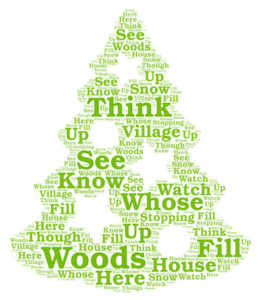
There is a caveat, however: You must be able to copy and paste (or type) your text into the word cloud generator site. Older works (like Frost’s poems) are in the public domain and are easily found online. Google the text you want to use and see what you can find.
Usually, I like to use just one slice—a chapter or section—of a longer text so we can examine it closely. But sometimes it’s interesting to paste a complete book into a generator, to notice overall trends of the work. Once you’ve created a piece of Word Art, you can save it and print it to use in class.
10 ways I use word clouds with students
- After reading, have students examine the bigger vs. the smaller words. Ask questions like:
- Which three words are the biggest? Why, do you think? What does this tell us about the story? (Common answers include main character identification, the main setting, or verbs like “said” if there’s a lot of dialogue.)
- Find three medium words. Why are they medium-sized, do you think?
- Find three small words that surprise you. Maybe you don’t remember them from the text, or maybe you think they don’t belong.
Here is the first poem from Karen Hesse’s Out of the Dust in a Tagxedo image of a baby’s footprint, since the poem is about Billie Jo’s birth and her mother’s new pregnancy. Think of the questions above as you study the picture.
A note about Tagxego: There are several shapes to choose from. Some of the words may appear quite small, but the site is interactive—if you use Tagxego online instead of as a photocopy, all students have to do is hover over a word to see it enlarge for easy reading. Also, with Tagxedo, you can add another layer to your questions, by asking students to relate the shape to the reading.
- After reading, ask students questions about literary elements. For example:
- Find three words that relate to character traits. Which character do they pertain to, and why?
- Find three words that relate to a setting. Which setting do they describe, and how?
- Find three words that relate to a theme. What theme does each word point to? Why do you think this is a theme?
- What is the mood of this chapter (or poem)? Find 3-5 words that contribute to the mood.
- (For first person point-of-view): Who is telling this story? Is his/her name in the Wordle? If so, what is the size? (The goal here is to heighten the awareness and parameters of first-person point-of-view. In a first person narration, the narrator usually wouldn’t call herself by her name, so it wouldn’t be in the Wordle, unless she is called or talked about by the other characters. Knowing this, I sometimes ask the question backwards to students. For example, I would say, “Why isn’t the name Ponyboy in the Wordle? Isn’t he the main character?”)
Here is another Tagxedo image of the first chapter of George Orwell’s Animal Farm. Notice words that pertain to the above topics about character, setting, and theme.
- Use a word cloud as a pre-reading activity. Before you read, create a cloud out of the story’s first chapter, or the entire story or poem. Give students time to really peruse it as they wonder about the text. Here are some possible questions:
- Who do you think the main characters will be?
- Where and when do you think this story will take place?
- What do you think this story will be about?
- What might a theme of this story be? What could be a deeper meaning?
- Can you find a new word that you don’t know? How about two or three?
- Do you think a young person is telling this story? Why or why not?
Here’s a word cloud of the entire text of Bridge to Terabithia by Katherine Paterson. Students can make interesting predictions and generate curiosity about the book as a whole by studying it.
- Before reading something brief, give it to students as a word cloud and have them try to reconstruct it.
I like to give Johnny’s letter to Ponyboy as a word cloud before we read it in the text, and have students try to reconstruct it before we look at the “answer.” (I encourage them to add any articles, prepositions, or other connecting words they think might be missing in the cloud image.)
At this point in the text, Chapter 12, students have enough prior knowledge about the characters and plot to give this exercise a worthwhile shot. They won’t rewrite it exactly like S.E. Hinton’s version, but they’ll be close. And regardless of the end product, they work with the words in a meaningful way, incorporating what they know about the story. Here’s what the letter looks like as a Wordle:
- Have students create an original piece of writing from the word cloud.
After examining a word cloud, it’s fun to have students write haikus or other short “found poems” from the words. These can be about the text or not, and I encourage them to add any necessary connecting words. For example, I’ll set a requirement such as: “Write a haiku from the word cloud using at least five words.” That way, the students must use the word cloud, but the resulting poem won’t become too forced.
Another writing assignment I like to give is to have students write a paragraph about their own lives, using at least ten words from a word cloud. This requires students to connect the author’s words, and, subtly, elements of the text, to their own lives.
- Use word clouds with non-fiction. Depending on the non-fiction text, you can ask questions like:
- Which words support the author’s claim?
- Which words function as transition words in the text?
- Which words are part of the facts? Which are more opinion words?
- Which words contribute to the author’s tone?
- Formulate three questions for the author, using words from the cloud.
- Use word clouds with drama.
Pasting a scene, act, or whole play into a word cloud generator can be especially interesting. Not only will students see elements of the plot, themes, characterization, and possibly setting; a drama word cloud will also show who speaks most frequently, and who or what is spoken about the most. If the play is formatted to indicate speakers in all caps, some word generators will keep the speakers capitalized in the cloud.
Look at Act I, Scene ii from Shakespeare’s A Midsummer Night’s Dream. We can see that Quince speaks the most lines, followed by Bottom. The main topics of discussion are the play, Pyramus, Thisbe, a beard, the roar, and Quince himself:
- Use word clouds as a pre-reading activity to explore vocabulary, rhyme, syllables, or onomatopoeia.
- For vocabulary, have students make a chart from the word cloud:
- For rhyme (this works well with poetry word clouds especially), have students find any rhyming pairs or triplets. For syllable practice, have students create a chart like the one above for 2-syllable, 3-syllable, and 4-syllable words. For onomatopoeia, have students list any onomatopoeic words and form sentences with them. Any attention you can draw to the words themselves before reading will prime students to go deeper into the text when they read.
- Look at the Tagxedo of Frost’s “Acquainted with the Night” below. Students could pick out rhyming words and words of different syllable counts, to attune themselves to sound and meter before even reading the poem:
- Use word clouds to highlight parts of speech.
Create a chart with the headings “Nouns” (or even “Common Nouns” and “Proper Nouns”), “Verbs,” “Adjectives,” and “Adverbs.” Students can list words as a pre-reading or post-reading activity.
Note that in most word cloud generators, smaller, more common words are automatically filtered out. However, you can change this option in the settings in some apps (WordArt, for example) if you want to have students focus on prepositions, articles, conjunctions, pronouns or helping verbs.
Below is a Tagxedo of the “How I Came to Life” section in Chapter 1 of R. J. Palacio’s Wonder, with the common words left in (a bonus question for the students could be about why it is shaped as a speech bubble):
- Have students create word clouds.
Students can be taught to paste short texts into a word cloud generator and create their own questions for the class – the ultimate demonstration of understanding! Or, students could be given a pre-made cloud and asked to generate questions from it. Another effective use, especially for older students who might be writing full essays, is to have students copy and paste their own writing into the cloud generator. The most frequently used words in the students’ writing can then be analyzed.
A few more ideas and tips
When we work with word clouds in my class, I usually give students a mix of all the methods suggested here. A question sheet might ask about characters, setting, theme, predictions, grammar and vocabulary all at once, and then end with a short writing assignment.
Whatever inquiry we do with a word cloud generator, students always are excited to see them. And I always let them work in partners – the group discussion over a word cloud is usually energetic and fruitful. Without fail, students notice ideas about the text that I had not yet focused on. I learn just as much as the students with this exercise.
A Wordle of this article
One final, important point is that word clouds themselves are informational texts: They are, in fact, infographics. They give data about a text, and from that data students can draw thoughtful conclusions or make meaningful predictions.
Word clouds are not just a fun review or recap; they are a new text to be interpreted. And in our increasingly visual, infographed world, any practice that we can give students in the critical consumption of images will help them.
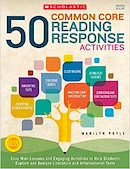
The
drive
to
be
someone
you’re
not
Стремление
быть
кем-то,
кем
ты
не
являешься.
Chased
desert
dreams
in
hopes
I’m
not
forgotten
Гнался
за
мечтами
пустыни
в
надежде,
что
я
не
забыт.
I
told
myself
that
I
was
doing
the
right
thing
Я
сказал
себе,
что
поступаю
правильно.
Faked
everything,
faked
everything
I’m
not
Подделал
все,
подделал
все,
кем
я
не
являюсь.
Red
clouds
come
down
Красные
облака
опускаются.
Won’t
you
take
me
away?
Разве
ты
не
заберешь
меня?
Red
clouds
all
around
Красные
облака
вокруг.
Won’t
you
take
me
away?
Разве
ты
не
заберешь
меня?
I
remember
how
badly
I
wanted
to
be
here
Я
помню,
как
сильно
хотел
быть
здесь.
Now
I’m
just
scared
Теперь
мне
просто
страшно.
Unveiled
destiny
Раскрытая
судьба.
Miles
apart
from
me
В
милях
от
меня.
I
told
myself
that
I
was
doing
the
right
thing
Я
сказал
себе,
что
поступаю
правильно.
Faked
everything,
faked
everything
I’m
not
Подделал
все,
подделал
все,
кем
я
не
являюсь.
Red
clouds
come
down
Красные
облака
опускаются.
Won’t
you
take
me
away?
Разве
ты
не
заберешь
меня?
Red
clouds
all
around
Красные
облака
вокруг.
Won’t
you
take
me
away?
Разве
ты
не
заберешь
меня?
Cause
sometimes
it
takes
a
little
bit
of
leaving
Потому
что
иногда
нужно
немного
уйти.
To
find
to
find
some
meaning
Чтобы
найти
какой-то
смысл.
Red
clouds
come
down
Красные
облака
опускаются.
Won’t
you
take
me
away
Не
заберешь
ли
ты
меня?
Won’t
you
take
me
away
Не
заберешь
ли
ты
меня?
My
intention
to
be
better
than
you
thought
I
could
be
Мое
намерение
быть
лучше,
чем
ты
думал,
я
могу
быть.
Ended
up
getting
caught
up
in
the
life
I
never
thought
I
ever
would
be
Все
закончилось
тем,
что
я
попала
в
жизнь,
о
которой
никогда
не
думала.
They
say
they
«told
me
so»
Они
говорят:
«мне
так
сказали».
But
how
could
I
have
ever
known
Но
как
я
могла
знать?
Well
now
I
know
better
Что
ж,
теперь
я
знаю
лучше.
I’ll
never
be
your
prisoner
Я
никогда
не
буду
твоим
пленником.
I
hoped
you
knew
me
better
Я
надеялся,
что
ты
знаешь
меня
лучше.
I
am
my
own
prisoner
Я
сам
себе
пленник.
Red
clouds
come
down
Красные
облака
опускаются.
Won’t
you
take
me
away?
Разве
ты
не
заберешь
меня?
Red
clouds
all
around
Красные
облака
вокруг.
Won’t
you
take
me
away?
Разве
ты
не
заберешь
меня?
Cause
sometimes
it
takes
a
little
bit
of
leaving
Потому
что
иногда
нужно
немного
уйти.
To
find
to
find
some
meaning
Чтобы
найти
какой-то
смысл.
Red
clouds
come
down
Красные
облака
опускаются.
Won’t
you
take
me
away
Не
заберешь
ли
ты
меня?
Won’t
you
take
me
away
Не
заберешь
ли
ты
меня?
Внимание! Не стесняйтесь оставлять отзывы.
The seasons and weather vocabulary are words you can practice on a daily basis and they are very useful. It’s worth the time to learn these words.
Listen to the video to hear the correct pronunciation — in American English — and practice saying the words out loud during the pauses. It will help improve your pronunciation and also make it easier for you remember the words.
Hear the seasons and weather vocabulary pronounced
Get Your Free Vocabulary Puzzles eBook
Solving puzzles is a great way to learn vocabulary. This book contains more than 25 crossword, word search and word scramble puzzles on twenty (20) different topics.
Along with the FREE ebook, you’ll receive my weekly newsletter with tips, lessons and special offers just for my subscribers.
Enter your name and email address to get your free copy.
Seasons & Weather Vocabulary in Pictures
The Seasons
The four seasons are described here but in many places around the world there are only two seasons. If there are only two seasons, we usually describe them as the «rainy season» (or wet season) and the «dry season.»
Spring: The season between winter and summer (in the USA from April — June), when plants and trees begin to bloom.
Summer: The season in between spring and autumn (in the USA from July — September) when it is the weather is warm or hot.
Autumn (or Fall): The season in between summer and winter (in the USA from October — December). In many places the leaves turn colors and fall off the trees.
Winter: The season between fall and spring (in the USA January — March) when the weather is the coldest.
Weather Vocabulary
(including extreme weather vocabulary)
sunny: the sun shines clearly in the sky and there is lots of bright light.
(It is also common to say the sky is «clear» when there is bright sun and no clouds).
cloudy: there are many clouds in the sky.
(We also can say the sky is overcast when it is very cloudy).
partly-cloudy: when there is both sun and clouds in the sky.
rain: when water falls from the clouds.
light rain: when there is a small amount of rain.
We also call light rain drizzle or sprinkles:
- It’s drizzling outside.
- You don’t need an umbrella, it’s just sprinkling.
Heavy rain: when there is a lot of rain.
It is also very common to say:
- There is a downpour. (A sudden heavy rain)
- It’s pouring down rain.
- It’s raining cats and dogs.
freezing rain / sleet: when part of the rain is water and part of the rain is frozen (snow).
thunder storm: a storm with thunder and lightning. Also called an electrical storm.
- lightning: the flash of light in the sky during a storm.
- thunder: the loud noise in the sky that comes after lightning.
- We say lightening «strikes» and call the flash of light a lightning bolt.
fog: small drops of water that float above the ground (and it can be difficult to see through this mist of water).
- foggy weather.
- We say thick fog.
- The fog was so thick I could barely see the other cars on the road.
windy: when there is a lot of wind.
«strong / light» collocate with the word wind in English:
strong winds: when the wind is blowing with a lot of force.
light winds (breezy): when there is a light breeze.
frost: a thin layer of ice that forms on surfaces (e.g., grass, ground, windows of a car) when the air is very cold.
- We say heavy / light frost.
- We say things are covered with frost (or covered with a layer of frost).
- A defroster melts frost off car windows by using warm air to melt the ice.
snow: soft, light pieces of frozen rain that fall from the sky when it is cold.
The individual pieces are called snowflakes and have beautiful designs.
blizzard: a severe snow storm with a large amount of snow and often high winds.
tornado: a powerful storm where very high winds move around in a circle around a point.
- We say a tornado «touches down» on the ground.
- A tornado moves or travels in a path.
- Example: The tornado touched down in Kansas and 15 houses in its path were completely destroyed.
hurricane: a very powerful and destructive storm that has extremely high winds.
forest fire: a major uncontrolled fire that sweeps through a wooded area (forest) burning many trees and wildlife.
flood: a large amount of water that covers land that is usually dry.
earthquake: the surface of the earth shakes and moves and can cause great damage and devastation if it is very strong.
volcanic eruption: a sudden explosion that comes from the open part of a volcano.
tsunami: an extremely high wave in the ocean that is often caused by an earthquake and causes great devastation when it reaches land. (Also called a tidal wave).
thermometer: an instrument used to measure the temperature.
Celsius and Fahrenheit are the two main scales used to measure the temperature. In the United States, the weather is reported in Fahrenheit.
Related Lessons
Your turn to practice the seasons & weather vocabulary
One of the best ways to master seasons and weather vocabulary is to listen to the news and read the weather forecast (the prediction of what the weather will be like) in your newspaper. Most countries have one or two English-speaking news channels (e.g., CNN or BBC) but if yours doesn’t you can watch weather report videos on the internet on Accuweather and BBC.
Another bonus for watching and reading weather reports is that you get to practice the names of countries and cities around the world (for a detailed list of countries / nationalities click here).
You can also practice this weather vocabulary by writing a short essay or paragraph. Here are some topic ideas:
- What was the weather like in your country today?
- What is your favorite type of weather?
- Do you have any extreme weather in your country (e.g., earthquakes, hurricanes, floods, tsunami, volcanic eruptions).
-
Home Page
-
Main Vocabulary List
- Weather vocabulary
›
›
Vocabulary
2. Fill in the missing word. There are two words you do not need to use.
1. The heavy rain caused the driver to lose control of his car and crash into a tree.
2. What started out as a light breeze soon became a very strong wind.
3. The well-trained lifeguard was able to rescue the drowning swimmer and quickly bring him to safety.
4. The lead actor felt under the weather and Daniel was asked to replace him in the school play.
5. The big earthquake caused many buildings to collapse and people were left homeless.
6. When the avalanche hit the area, dozens of people were snowed in for many hours.
7. Cars and factories produce toxic fumes that harm the environment.
8. A terrible flood caused by three days of continuous rain has destroyed many houses inthe small fishing village.
9. drought will occur in an area when it hasn’t rained for an unusually long period of time.
10. The terrible fire left dozens of buildings in ruins







